Teacher’s Pack

Teacher’sPlanningBook







Teacher’sResource Book ExtractSample


SeniorInfants
Teacher’sPlanningBook



SeniorInfants
Teacher’sResourcesBook
SeniorInfants
Teacher’s Pack



©TheEducationalCompanyofIreland

Sample Teacher’sPack
SeniorInfants
ExtracSample t
MiaJayLexiDara Monty
TheEducationalCompanyofIreland
Notetoteachers: Thecontentsshownindicatewhatisincludedinthissampleextract.
While we have combinedthe resourcesintoasinglebooklethere,therewillbetwoseparate booksprovidedtoteacherswhoadopttheprogramme–a Teacher’s PlanningBookanda
©TheEducationalCompanyofIreland
Contents
Teacher’s ResourcesBook.Thecontenthasbeensplit foreaseofuse. Introduction 1 How MathsandMe AlignstothePrimaryMathsCurriculum 1 YourGuideto MathsandMe 8 YearlyOverview 13 Unit 14:Money–Planning 16 Unit 14:Short-TermPlan 16 Unit 14:LessonPlans 19 Unit 14:Money– Resources 38 Unit 14:SamplePCM1EuroCoins 38 Unit 14:SamplePCM2MoneyArea Parts 39 Unit 14:Let’sStrengthenPCM 40 Unit 14:Let’sDeepenPCM 41 Unit 14:Let’sStrengthenSuggestions for Teachers 42 Unit 14:GamesBank 43 Unit 14: FormativeAssessmentObservationsSheet 45
How MathsandMe Alignstothe PrimaryMathsCurriculum(PMC)
StrandsandStrandUnits
ThePrimaryMathematicsCurriculum(PMC)hasfive Strands,whichare dividedinto StrandUnits:
Algebra
● Patterns, Rulesand Relationships
● Expressionsand Equations
DataandChanceMeasuresNumber
● Data
● Chance
● Measuring
● Time
● Money

©TheEducationalCompanyofIreland
● UsesofNumber
● Numerationand Counting
● Place Valueand Base Ten
● Setsand Operations
● Fractions
ShapeandSpace
● Spatial Awarenessand Location
● Shape
● Transformation
Table1:OverviewoftheStrandsandStrandUnits
In MathsandMe,thecontentofeachunitisclearlyconnectedtooneormoreofthe Strands and StrandUnits.
LearningOutcomes
EachoftheStrandUnitscontainsasetofLearningOutcomes.Learningoutcomesareusedtodescribethe expectedmathematicallearninganddevelopment foralllearnersattheendofatwo-yearstage,whendue accountistakenofindividualabilitiesandvaryingcircumstances.
Eachofthelearningoutcomesbeginswiththestem,‘Throughappropriatelyplayfulandengaginglearning experiences,childrenshouldbeableto...’Thisstememphasisestheimportanceofprovidingrichand engaginglearningexperiences.
In MathsandMe alllearningoutcomesarecoveredindepth.Theprogrammehasbeendesignedto includeawide rangeofrich,appropriatelyplayfulandengagingactivitiesandtasks,whichdemonstrate keypedagogicalpractices,andsupportchildrentowardsachievingthelearningoutcomesanddeveloping theirmathematicalproficiency.
1 Introduction
Introduction
ProgressionContinua
The PMCissupported by thePrimaryMathematics Toolkit,whichincludestheProgressionContinua.The progressioncontinuaoutlineasamplelearningtrajectoryofMathematicsatprimarylevel.Theysuggest aseriesof learningexperiences whichchildrenmightengagewithastheydevelopanddeepentheir mathematicalknowledge,skillsanddispositions.Eachcontinuumdescribesthelearningjourneyacrosseleven ProgressionMilestones(a–k)intermsofmathematicalcontent(StrandUnits)andprocesses(Elements).
Takingintoconsiderationtheelevenprogressionmilestones(a–k),thevariousclasslevelsof MathsandMe have beendevelopedaroundcertainmilestones:
JuniorInfants
©TheEducationalCompanyofIreland
SeniorInfants
FirstClass
SecondClass
ProgressionMilestonesbandc
ProgressionMilestonescandd
ProgressionMilestonee
ProgressionMilestonef
Table2: MathsandMe ClassLevelsandtheProgressionContinua
Thatsaid, MathsandMe recognisesthatchildrenlearnanddevelopatdifferent rates.Therefore,whilethe contentoftheFirstClassbook, forexample,centresaroundsuggestedlearningfromProgressionMilestone e,itisalsoinfluenced by thestatementsinProgressionMilestonesdand f, tocater fortheneedsofallthe children. Teachersare recommendedtoexerciseprofessionaljudgementwhenmakingdecisionsastothe learningactivitiesandtaskswhicharemostappropriate forthechildrenintheirclassroom,andtoadapt accordingly.
MathematicalConcepts
ThePrimaryMathematics Toolkitoutlinesmathematicalconcepts.Theseareconsideredtobethe keyideas thatunderpineachlearningoutcome.Itisenvisagedthatchildrenwilldeveloptheirunderstandingofthese conceptsthroughengagingwiththemathematicalprocesses,asoutlinedintheelements.
In MathsandMe,mathematicalconceptsinformthedesignofunits,includingthemathslanguageto focus on,andinfluencetheprogressionofcontentfromoneclasstoanother.
2 Introduction
Focusoflearning
A FocusofLearningidentifiesthepurposeofalessonand/ortheintendedlearningthatwilltakeplace.
In MathsandMe,the FocusofLearningineachlessonechoesthesuggestedlearningexperienceslisted intheprogressioncontinua,i.e.each focusoflearningiseitheranexact replicaofastatement,oris derivedfromoneormorestatements.
The focusoflearningisalsoconnectedtooneofthe fourelementsusingtheabbreviatedtitles.
Day1,Lesson1
AwarenessofMoney
Focusoflearning(withElements)
● Articulatesandsharespriorunderstandingofmoney(U&C)
● Discussesthepurposeofmoneyandthedifferentwaysthat we canpay forgoods/services(including cashandcashless) (C)
● Become familiarwithwaysthatmoneyisspent,earnedandsavedand relatetheseconceptstotheir ownlives(U&C)
Learningexperiences
D D C P
Animation:OfftotheShops MAM Routine: Reason& Respond
Video:MoneyA–E MAM Routines: Reason& Respondwith
Think-Pair-Share
Role-playactivity:TheClassShop
Pupil’sBookpage60: AwarenessofMoney
Elements
Childrendeveloptheirmathsskillsthroughprocessessuch asconnecting,communicating, reasoning,argumentation, justifying, representing,problem-solving,andgeneralising.The PMC(2023)uses fourelementstodefinetheseprocesses,and tocategorisethesuggestedlearningexperiencesgiveninthe progressioncontinua. Elements
Table3:An overviewofelementsandabbreviations
©TheEducationalCompanyofIreland
In MathsandMe,the focusoflearningineachlessonisclearly connectedtooneoftheseelementsusingtheabbreviated title(seesecondcolumnof Table3).Andwhilethe focusof learningmayincorporatemorethanoneofthesecentral processes,itisthemostprominentelementthatisgiven.
Equipment
● Materials forclassshop, includingcash register,card readerandbankscards
● Playmoneyor realcoins
● Countingaidssuchas counters,interlockingcubes andnumberpaths
Learningexperiences
The PMCadvocatesthatteachers providechildrenwithrichmathematical learningexperiencesthatareplayfuland engaging,that reflect relevantpedagogical approachesandthatprovideopportunities forchildrentocollaborate,communicate mathematicalthinking,andexpresstheir understandinginmultiplewaysandin variouscontexts.
Inlinewiththelearningoutcomes, mathematicalconceptsandsuggested learningexperiencesintheprogression continua, MathsandMe providesawide rangeofrichandmeaningfullearning experiences foreachlesson.Manyof thesearedesignedaroundthe Maths andMe Routines.
3 Introduction
Abbreviations UnderstandingandConnecting(U&C) Communicating (C) Reasoning (R) ApplyingandProblem-Solving(A&PS)
MathsandMe Routines areacollectionofplayful,engagingandinclusiveinteractionsthatpromote mathematicaltalk,thinkingandmodelingamongallchildren.These repeatable routineshave beenchosen astheyareproventoactivatepriorknowledge, fosterproductivedispositionsandprovidevaluable formativeassessmentopportunities forteachers.
Inadditiontosupportingthefive keypedagogicalpractices,whichwillbedescribedindetailinthenext section,the routinesalsosupport formativeassessmentandinclusivepracticesasdemonstratedin Table4.
Summaryofthe MathsandMeRoutines
©TheEducationalCompanyofIreland
Doesitsupport/promote…?
MathsandMe Routines
Think-Pair-Share
Notice& Wonder
Reason& Respond,e.g.WhatAmI?; Would You Rather?; WhichOneDoesn’tBelong?;SameButDifferent;Always, Sometimes,Never; TargetBoards
Write-Hide-Show
Number Talks:QuickImages
Number Talks:NumberStrings
BuildIt;SketchIt; WriteIt
Three-Act Task
WouldThis Work?
ConceptCartoon
ChoralCounting
IDo, We Do, YouDo
My FavouriteNo
✔✔✔✔✔✔✔
✔✔✔✔✔✔✔
✔✔✔✔✔✔✔
✔✔✔✔✔✔✔
✔✔✔✔✔✔
✔✔✔✔✔✔
✔✔✔✔✔✔✔
✔✔✔✔✔✔✔
✔✔ ✔✔✔✔
✔✔✔✔✔✔✔
✔✔✔ ✔✔
✔✔✔ ✔✔
✔✔✔✔✔
Table4:Alignmentof MathsandMe Routineswiththefive key pedagogicalpractices, formativeassessment andinclusivepractices.
4 Introduction
Maths Ta lk Playfulness ProductiveDisposition CognitivelyChallenging Ta sks MathematicalModeling FormativeAssessment InclusivePractices
Keypedagogicalpractices
Chapter6ofthe PMCdescribesfive keypedagogicalpractices.Thesepracticesareacknowledgedasessential totheprovisionofqualitymathematicallearningexperiences.
FosteringProductiveDisposition
The PMCemphasisesthat‘Dispositionsarenotstaticandcanbenurturedorchanged overtime’andacknowledgesthat‘attitudestomathematicsandvalues,bothathome andintheclassroom,alsohave astrongimpactonthedevelopmentofthechild’s productivedisposition formathematics’(p.28).
©TheEducationalCompanyofIreland
Thefundamentalaimof MathsandMe is forthechildtocometoappreciatemathsassomething thatispositiveand relevanttothem.Ifthishappens,itismorelikelythattheywillengagewithmaths inameaningfulway. Thisseriesaimstoachievethis by:
● Highlightingthe worldofmathsaroundthechildren −intheirschools,intheirhomes,intheirlives
● Using real-lifeexamples ofmathsinactionandsituationsthatchildrencareabouttomakemaths meaningfuland relevant
● Actively encouragingthepositiveinvolvementof families intheirchild’slearningandmathematical experiences
● Incorporatingfunandentertainingactivities,includingplay, role-playscenariosandengaginggamesto boostenjoymentwhilealso emphasisingcollaborativetasks overindividual work
● Includingtasksthatencourage activeparticipation,exploration,investigation,productivestruggle, risk-taking,creativestrategiesandperseverance,whichwill resultin asenseofpersonalsatisfaction intheiraccomplishments
● Providing scaffolding,encouragementandsupport,includingtimetothinkand reflect
● Enabling childagencyandthechild’s voice.
EmphasisingMathematicalModeling
The PMCstatesthat‘MathematicalModelinginvolvesusingmathematicstodescribea problem-contextanddeterminemeaningfulsolutionstotheproblem.In formingmodels, childrenmightusephysicalactions,spoken words,objects,images(e.g.graphs,diagrams andpictures),symbolsorwritten words’(p.30).
MathsandMe enablesmathematicalmodelinginmanyways:
● Emphasisingthe importanceofthinkingtime toallowthechildrentomakesenseoftheirthinking
● Using speciallychosenquestionsandtasks toencouragethechildrentomodelmathematically
● Presentingmathsconceptsinmultipleways and/orusingmultiplevisual representationstointroduce thechildrentoawidervarietyofmodelsthantheymighthave encounteredorcreatediflefttotheir owndevices
● Encouragingthechildren tobeindividualandunique inhowtheyexpressand representtheirideasandthinking
● Promptingthechildrento challengeandtesttheir ownthinking andmodels,and thoseofothers
● Encouragingtheuseof physicalmodels (classroommaterialsandmanipulatives) tosupportmathematicalmodelingintheclassroom,andincluding representationsoftheseintheprintanddigitalmaterials
● Usingavarietyof conceptualandproceduralmodels todemonstrate differentapproachesandstrategiesandencouragechildrentodeveloptheir ownmodelsanduniquewaystoapproachcomputationsandtasks.
5 Introduction
Fostering productive disposition
Emphasising mathematical modeling
UsingCognitivelyChallenging Tasks
The PMCdescribesCognitivelyChallenging Tasks (CCTs)as‘richhigher-orderlearning opportunitiesthatshouldappropriatelystretchandchallengechildren’sconceptual understandingastheyencountersignificantmathematicalideasandsituations. Sometimes referredtoas low-thresholdhigh-ceilingtasks,thesetasksshouldprovide allchildrenwiththeopportunitytoaccessmathematics,whileofferingthepotential for deeperengagement’(p.31).
MathsandMe facilitatesCCTsintheclassroom by:
● Incorporatingchallengeslinkedtochildren’scurrentlevelofknowledgeandunderstanding,while providinganappropriatestretch
©TheEducationalCompanyofIreland
● Providingtaskswherethesolutionpathwayisnotimmediatelyobvioustothelearnerorwherethe solutionisnot reducedtoasetofstepsandprocedures
● Facilitatingchildrentocommunicateandexpresstheirideasopenly,allowingthemtodiscuss,compare, justifyandevaluatetheirideasorsolutions.
CCTshave beenincorporatedthroughouttheprogrammeanditscomponents.
PromotingMaths Talk
The PMCdescribesMaths Talkas‘acollaborativeprocesswherechildren’sthinking, strategiesandideasarediscussed,sharedand/orexchanged.Thisallowschildrento reflectontheir ownunderstanding;define,presentandjustifytheirideas;makesenseof andcritiquetheir ownideasandthoseofothers;anddeveloptheirabilitytoexpressand articulatetheirthinking’(p.32).
Ineverylesson, MathsandMe providesideas forMaths Talkactivities,whichbeginwithappropriately challengingandengagingtasks.Bytheir verynaturetheseMaths Talkactivitiesalsoproviderichassessment opportunities,i.e.elicitingcurrentknowledgeandunderstanding,identifyingemergingconcepts.These activitiesemphasisetheprobingand responsiveaspectsofMaths Talk.Allofthe MathsandMe Routines promoteand fosterMaths Talk.Theuseofthese routinessupportsacultureof respectandrisk-taking,where children feelsafetosharetheirthinkingandareencouragedtolistentoandvaluetheideasofothers.
EncouragingPlayfulness
The PMCstatesthat‘Mathematicallearningcanbegreatlyenhancedinaplayenvironment thatisinteractive,engaging,inclusiveandsupportive;andthatprovidesopportunities for exploration,investigation,challenge,creativity,choiceandindependence.Playprovides acontext formathematicalthinkingandthedevelopmentofmathematicallanguageand concepts,withclearpotential forpromotingmathstalk’(p.29).
MathsandMe encouragesplayfulness by:
● Tappingintochildren’sinterestsandcuriositiesthroughengagingthemesand real-lifecontexts
● Suggestingideasandwaystointegratemathematicallearningwithplayfulactivitiesthroughouttheday
● Facilitatingmultiplemeansofexpressionand representation
● Providingopportunities forchildrentoexploreandexperimentwithmathematicalideas
● Fosteringthecreationofasafespace forspontaneity,creativityandimaginativeplaywithmathematics
● Providingaccesstoawide rangeof resources,visualsupportsanddigital resources.
6 Introduction
Using cognitively challenging tasks Promoting maths talk Encouraging playfulness
AssessingPrimaryMaths
The PMCexplainsthat ‘Assessmentisanintegralpartoflearningandteaching.Itinvolvesteachersand children workingtogethertouseinformationtoinformandsupportlearningandteaching’(p.34).The PMC advocatesthreetypesofassessmentasbeingnecessary‘togainacomprehensivepictureofachild’sprogress andachievement’(p.35).Theseare:
● Intuitiveassessment:Unplanned,unrecorded,andongoing
● Plannedinteractions:Morevisible,maybe recorded,and relatedtolearningoutcomes/competencies
● Assessmentevents:Distinct,visible, recordedevents.
Assessmentisintegratedthroughout MathsandMe.Thelearningexperiencesarestructuredinsuch awaythattheysimultaneouslypromotethedevelopmentofmathsskillsandfluency,andenablethe teachertogather, record,interpret,useand reportinformationaboutachild’sprogressandachievements. Theteachercanthen respondtotheinsightsgatheredfromtheassessmentsandadjusttheirteaching accordingly.
Theprogrammesupportsthethreetypesofassessmentoutlinedinthe PMCinthe followingways:
Intuitive assessment
● Unitplansprovide comprehensivebackground andrationale information forteachersonallthetopics covered,alongwith guidance andsupportsaroundcommon misconceptions,thus increasingteacherawareness andpreparednesstoobserve and respondtopupils.
©TheEducationalCompanyofIreland
Plannedinteractions Assessmentevents
● Lessonsaredesignedaround richlearningexperiences linkedtothe focusoflearning andlearningoutcomes.
● Lessonsuseanumberof MathsandMe Routineswhich posequestionsdesigned tostimulateclassroom conversations andtoscaffold learning.The regularityof theseensurethey become familiar,recognisable assessmentopportunities.
● Eachlessonplanhighlightsthe learningexperiencebest suitedtogenerating recordableassessmentdata.
● Pupil'sBooktasks provide furtherassessmentdata,as doesthe self-assessment feature.
● Mathsjournalling opportunitiesareoutlinedin thelessons.
● Eachunitcomeswitha FormativeAssessment ObservationsSheet for teachers.
Table5:Assessmentsupportsin MathsandMe
● The ProgressAssessment Booklet providescheckupquestionslinkedtothe learningoutcomesofeach unit.Thesequestionscanbe usedasaplannedassessment and administeredasa traditionaltest,orusedasthe basisof agrouporwholeclass quiz.
● A comprehensiverecord sheet enableseasyanalysisof assessmentdataatindividual, groupandclasslevel.
7 Introduction
YourGuideto MathsandMe
Thisguidewillwalk youthroughtheprogramme’s keycomponents,highlightingitsstructure,integrated approach,easeofuse,andthechoicesitofferstobothteachersandchildren.
Structureof MathsandMe
The MathsandMe yearly overviewisdividedintomonths,thensubdividedinto units.Eachunitiseitheroneortwo weekslongandcoversaspecificareaof learning.Thecontentofeachunitisclearlyconnectedtooneormoreofthe StrandsandStrandUnits.
Review Weeksarealsoincludedinthe yearly overview,providing regular opportunities forchildrento reviewand reflectontheirlearning.
Unitsarethebuildingblocksof MathsandMe.Eachunitisbrokendownintoa numberoflessonplans,and followsasimilarstructure.Theinitiallessonactivates andassesseschildren’spriorknowledge,thesubsequentlessonsdevelopand progressthelearning,whilethefinallessonofeachunitprovidesavaluable opportunityto reviewand reflectviaamenuofoptions.
Let’sStrengthensuggestionsandmaterialprovidesadditionalsupporttochildren,whileLet’sDeepen suggestionsandmaterialprovideadditionalchallengeandextensionopportunities.
StructureofaUnit
InitialLesson
Figure1:Structureofa MathsandMe unit
Eachlessonalso followsaclearstructure,whichisstraightforwardandeasyto follow, andprovidesflexibility andchoice forteachers.
StructureofaLesson
Figure2:Structureofa MathsandMe lesson
8 Introduction
Activatesandassesses priorknowledge
Introducesthetopic ● Buildsonpriorlearning
Developsandprogresses thelearning
Providesopportunities toreviewandreflecton learning
SubsequentLessons FinalLesson ●
●
●
●
FormativeAssessment Let’sstrengthen Let’sdeepen
Warm- p Mainevent
Optionalconsolidation andextensionopportunities
13 YearlyOverview YearlyOverview TermOne Month WeekUnitNo.UnitTitle Strand(s):StrandUnit(s) September Numbersto 10 Number:NumerationandCounting Number:UsesofNumber Algebra: Patterns,Rulesand Relationships Number:SetsandOperations 2 32 Measuring1 Measures:Measuring 4 October 53 Operationswithin 10 Number:SetsandOperations Number:NumerationandCounting Number:UsesofNumber Algebra: Patterns,Rulesand Relationships 6 74 Time1 Measures:Time No mber 95 Numbersto15 Number:Place ValueandBase Te Number:NumerationandCounting Number:UsesofNumber 11 6Shape ShapeandSpace:Shape December13 7Operationswithin15 Number:Place ValueandBase Te Number:SetsandOperations Number:NumerationandCounting 15 Review Editableplanningdocument
©TheEducationalCompanyofIreland
Warm-up
Eachlessonstartswithwarm-upsuggestionstogetthechildren readytolearn. Theyaretypicallywhole-classactivities,whosepurposemightbeto:
● Provideanintroductiontothemainlesson
● Revisitconceptsthatthecurrentlessonwillbuildupon
● Reviewcontentcoveredpreviously.
Mainevent
Themainpartofthelessonincludesanumberoftasks,throughwhichthe childrenwillachievethe focusoflearning forthelesson.
Thesetasksmaybeconcreteactivities C ,digitalactivities D oractivitiesbased onprinted resources P
Somepointstonoteabout MathsandMe lessons:
● Emphasisonplayfulandengaginglearningexperiences
● Useofdigital resourcestoenhancethelearning
● Useof MathsandMe Routines:see At-A-GlanceGuide
● Support foralllearnersthroughLet’sStrengthenandLet’sDeepen features
● Formativeassessmentopportunitiesthroughout.
Optionalconsolidationandextensionopportunities
Eachlessonendswithachoiceoffurtherlearningexperiencestoconsolidateandextendthechildren’slearning.
Componentsof MathsandMe
To supportteachersinimplementingthe PMC,thecomponentsof MathsandMe have beendevisedtoserve variouspurposesandenhancetheteachingandlearningofmathsintheclassroom,widerschoolandhome environments.
Pupil’sBook
The MathsandMe Pupil’sBookisdesigned foruseafterengagementwith thelearningexperiencesoutlinedinthelessonplans.Itspurposeistwofold: toprovideanopportunitytoconsolidatethenewlearning,andtoprovidea recordofchildren’s work.
The following featuresareincluded:
● TryThis:providesoptional,cognitivelychallengingtasks forpupils
● Let’sPlay:incorporatesplayfulnessintomathsthroughengaginggames andinteractiveactivities
● MathsEyes:encourageschildrentolookaroundthemand recognise mathsinthe real world.
ThePupil’sBookalsocomeswiththe followingadditional resourcesto supportlearning:a MWBwithbranchingbondtemplate,adoubletenframe, andachoiceoftwospinners forusewithgames.



9 Introduction
21 Unit 14 Money Warm-up Digitalactivity: ading/Swapping utine: ConceptCartoonwithThink-Pair-Share DisplaytheConceptCartoon,inwhichLexiistrying abarofchocolate.UsingThink-Pair-Share,askthe childrenthe followingquestions,andtogive fortheiranswerswhereappropriate: Whatdo younotice?Whatdo you wonder? Next,clicktohearthecharactersproposetheirideas and,usingThink-Pair-Share,ask: ShouldLexitrade?Whatdo youthink?Explainwhy. Inpairs,askthechildrentodiscusswhetherornot theythinkLexishouldtradeherhairband forabar ofchocolate. ● Whodo younotagreewith?Whydo youthink theythinkthat? Howcan findoutwhosethinkingiscorrect? Allowtime forthechildrentopresenttheir viewlearningfromJuniorInfantsontrading/ swapping by asking: ● Whatdoesswappingmean?Whatdoestrading mean? Howdo youdecideifaswapis fairornot? Namesomethingsthat youtradeorswap. Mainevent Digitalactivity: Would You TradeA forB? MAM Routine: Reason& Respondwith WriteHide-Show Displaytheinteractivecardsandtellthe childrentolookatpicturesAandB(click eachsetofcardstoflipthem er).Ask: yo yo B,write YorN. ● Whydid s/no? ● Do uthinkthistradeis fair?Whyorwhynot? Doeseveryonehave thesameanswer?Whyor whynot? ● Can youthinkoftimeswhenadultsmighttrade/ swapitems? le-playactivity:TheClassShop Allowtime erthecourseofthedaytocontinue withsettinguptheclassshop.Giveeachgroupan opportunitytohelpoutwithorganisingtheshelves andcash gisterandmakingsigns. Let’s Trade! Day2,Lesson2 Discussestradingandswappingin al-lifesituations (C) Identifiesandjustifieswhetheratradeorswapisperceivedas fair(R) Exchanges irlybasedon le-playcontexts(A&PS) Focusoflearning(withElements) Digitalactivity: Trading/Swapping MAM Routine:Concept CartoonwithThink-Pair-Share Digitalactivity: uld adeA forB? utine: Reason& Respondwith Write-Hide-Show Role-playactivity:TheClassShop D C Learningexperiences ● MWBs,markers Equipment trade,swap, fair,not fair,unfair,cash gister Mathslanguage SeniorInfants Pupil’s Book ©TheEducationalCompanyofIreland
Home/SchoolLinksBook
The MathsandMe Home/SchoolLinksBook recognisestheimportanceofthe familyinthechild’slearning.Includedinthebookare‘Dear Family’notes for eachunit,whichprovidetipsonhowtosupportthechild,practicalactivitiesto becompletedathome,andQRcodesthatlinktodigital resourcessuitable for homeuse.Theactivitiesinthisbookhave beencreatedtobeapproachableand open-endedto facilitatechild-ledinvestigationandplayfullearning.


Teacher’sPack
The MathsandMe teacher’s resourcematerials have beensplitintotwobooks:the Teacher’s PlanningBookandthe Teacher’s ResourcesBook. The Teacher’s PlanningBookprovides comprehensiveteachingandplanning supportmaterialsinlinewiththe PMC.A yearly overview,unitplanswithshort-term planningandlessonplansareallincluded.
● The YearlyOverviewmapsouttheunits andstrandunitscovered overthecourse ofthe year.
● TheUnitPlansincludetheshort-term plan(fortnightlyplan)andadditional informationuseful forplanning,suchas commonmisconceptionsandmodelsand representationsused.

©TheEducationalCompanyofIreland











● TheLessonPlansoutlinethe focusof learning,learningexperiences,equipment needed,andmathslanguagethatwillbe focusedon.Fromthere,eachlessonisbrokendowninto WarmUpactivities,theMainEventandOptionalConsolidationandExtension Possibilities.
The Teacher’s ResourcesBookincludesalladditionalmaterialsoutsideofplanning.A rangeofphotocopiable materials(PCMs)are featuredhere,includinggeneralPCMs,Let’sStrengthenSuggestions for Teachers,Let’s StrengthenPCMsandLet’sDeepenPCMs.
ProgressAssessmentBooklet
The MathsandMe ProgressAssessmentBooklet featuresassessmentsthat covereachunit.Assessmentscomeinthe formofcheck-upquestionswhichare linkedtothelearningoutcomesofeachunit.Thebookletisdesignedinsucha waythatitcanbeeasilyusedaftereachunit,orduringeach review week.





10 Introduction
SeniorInfants Home/SchoolLinksBook Name: Class: SeniorInfants
Teacher’sResourcesBook
Teacher’s ResourcesBook
SeniorInfants Teacher’sPlanningBook
Name: Class: SeniorInfants ProgressAssessmentBooklet
Teacher’s Planning Book
Digital Resources
The MathsandMe digital resourceswillbringmathstolife forchildren,andenhanceclassroomlearning by encouragingparticipationandpositiveengagement.The resourcesaredesignedtocater fordifferentlearning stylesandcontributetothewide rangeofrichandplayfullearningexperiencesintheprogramme.
Innovative,intuitiveandeasytonavigate,the MathsandMe resourceshave primarilybeendeveloped asteachingtools fortheinteractivewhiteboard(IWB)andcanbeusedinconjunctionwiththechildren’s mini-whiteboards(MWBs)whereappropriate.
Supportingthepedagogicalpracticespromotedinthe PMCandproviding variedlearningopportunities forchildren,the resources reflectthelesson’s focusoflearning,promoteMaths Talk,incorporatemathematicalmodeling andallow for formativeassessment.Many resourceshave beenspecifically designedaroundthe MathsandMe Routines,suchasConceptCartoon, Three-Act TaskandQuickImages.
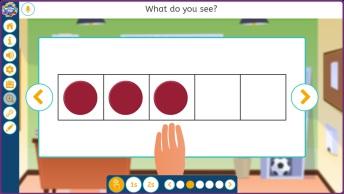
Digital resourcesaccompanymostlessons. To provideguidance fortheintegrationofdigital resourcesin theclassroom,theyare referencedindetailthroughoutthelessonplans foreachunit,withsuggestions for discussionanddifferentiation.The resourcesincludethe following:
Animations
Featuringtheprogrammecharacters–Mia,Jay, Lexi,DaraandMontythedog –theanimationsbringmathstolife withcolourfulstories,songsandfun scenarios relevanttochildren
©TheEducationalCompanyofIreland



Videos
Immersiveandinterestingvideoswithdetailedconceptexplanationsandmeaningfulexamplesofmaths inactioninthe real world
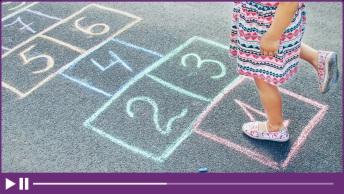
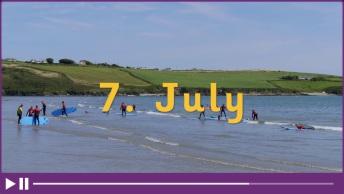

11 Introduction
Activities
Awide rangeofdigitalactivities–includingposters,slideshowsandinteractivegames–tosupport teachingandconsolidatelearning,encourageMaths Talkandpromoteactiveparticipation


©TheEducationalCompanyofIreland


Manipulativese-Toolkit
Acomprehensivesetofbespokeinteractivemathstoolsandmanipulatives,includingMoney,Shapes,Clock, NumberSquare,Place Value,Dice,Spinnerandlotsmore!
Howtoaccess
Teacherscanaccessthe MathsandMe digital resourcesvia www.edcolearning.ie,whereadedicated websitewillhosttheprogramme’s keycomponents.Witheasy-to-usefilteringtosupportclassroom teachingandlessonplanning, mathsandme.ie willincludeinteractivee-books,digital resources,editable planningdocumentsandprintables(suchasMathsLanguageCards,ManipulativesCut-OutsandAssessment RecordSheets).
Pupil/ParentApp
To supporthome/schoollinksandstationteachingintheclassroom,abankofdigital resources–suchas animationsandinteractivegames–willbemade availableviaafreePupil/ParentApp.
12
Introduction
YearlyOverview
TermOne
©TheEducationalCompanyofIreland
13 YearlyOverview
Month WeekUnitNo.UnitTitle Strand(s):StrandUnit(s) September 11 Numbersto 10 Number:NumerationandCounting Number:UsesofNumber Algebra: Patterns,Rulesand Relationships Number:SetsandOperations 2 32 Measuring1 Measures:Measuring 4 October 53 Operationswithin 10 Number:SetsandOperations Number:NumerationandCounting Number:UsesofNumber Algebra: Patterns,Rulesand Relationships 6 74 Time1 Measures:Time 8Review November 95 Numbersto15 Number:Place ValueandBase Ten Number:NumerationandCounting Number:UsesofNumber 10 11 6Shape ShapeandSpace:Shape 12 December13 7Operationswithin15 Number:Place ValueandBase Ten Number:SetsandOperations Number:NumerationandCounting 14 15 Review Editableplanningdocument
Term Two
©TheEducationalCompanyofIreland
14 YearlyOverview
Month WeekUnitNo.UnitTitle Strand(s):StrandUnit(s) January 16 8Numbersto20 Number:UsesofNumber Number:Place ValueandBase Ten Number:NumerationandCounting 17 18 9Locationand Transformation ShapeandSpace:Spatial AwarenessandLocation ShapeandSpace: Transformation 19 February20 10 Addition Number:SetsandOperations Number:NumerationandCounting Algebra: Patterns,Rulesand Relationships DataandChance:Data 21 22 Review March 2311Measuring2 Measures:Measuring Number:NumerationandCounting ShapeandSpace:Shape 24 2512Subtraction Number:SetsandOperations Algebra: Patterns,Rulesand Relationships DataandChance:Data 26 April* 2713 Patterns Algebra: Patterns,Rulesand Relationships 28 Review *DependingonwhenEaster falls,Aprilmaybewhollyorpartlyin TermThree.
©TheEducationalCompanyofIreland
15 YearlyOverview
Month WeekUnitNo.UnitTitle Strand(s):StrandUnit(s) May2914Money Measures:Money Number:SetsandOperations Number:NumerationandCounting 30 3115Fractions Number:Fractions Number:SetsandOperations ShapeandSpace:Shape Measures:Measuring 32 June 33 16 Time2 Measures:Time 34 35 17 Data DataandChance:Data 36 Review
TermThree
MathsandMe:SeniorInfants–Shor tTe rmPlan,Unit 14 :Money(May: We eks1&2)
Measures>Money
Number>NumerationandCounting;SetsandOperations
CMLearningExperiencesAssessment
Intuitive Assessment: re sponding toemerging misconceptions
Planned Interactions: re spondingto insightsgleaned fromchildren’s re sponsesto learningexperiences
D Re ason& Re spondL1–8
C Ro lePlay:TheClassShopL1–2,8
D ConceptCartoonL2
D Think-Pair-ShareL2-3,6–8
D Wr ite-Hide-ShowL2,4,7–8
C SortingCoinsL3
D SorttheMoney!L3
C CoinRubbingsL3
C WhatamI?L4
D QuickImagesL4
C MoneyStationsL4
D ChoralCountingL5–7
D Notice& Wo nderL5,8
C CoinOrderL5
D MoneyArea Pa rt sL5–7
C
C Game:LuckyDipL8
Print re sources
Pupil’sBookpages60–66 Home/SchoolLinksBookpages34–35 PCMXX
Strand(s)>Strandunit(s)
Secondarystrand>Strandunits(ifapplicable)
LearningOutcome ( s )T hroughappropriatelyplayfulandengaginglearningexperienceschildrenshouldbeabletodevelopan aw arenessofmoneyanditsuses.
Lesson Fo cusofLearning(withElements)
Aw arenessofMoney: Articulatesandsharespriorunderstandingofmoney(U&C);Discussesthepurposeofmoneyandthedifferentways that we canpay fo rgoods/services(includingcashandcashless) (C );Become fa miliarwithwaysthatmoneyisspent,earnedandsa ve dand re latetheseconceptstotheir ow nlives(U&C)
Let’s Tr ade!: Discussestradingandswappingin re al-lifesituations (C );Identifiesandjustifieswhetheratradeorswapisperceivedas fa ir (R);Exchanges fa irlybasedon re lativevaluein re al-lifeor ro le-playcontexts(A&PS)
Re cognisingandSortingCoins: Re cognisestheeurocoins1c,2c,5c, 10 c,20c,50c, €1 , €2 (U&C);Sortsandmatchesthedifferenteuro coins(R);Describessimilaritiesanddifferencesbetweencoins (C)
AssessmentEvents: informationgathered fromcompletionof theunitassessment intheProgress AssessmentBooklet pageXX 2
3
4 MatchingCoinsandAmounts: Re cognises,sortsandmatchescoins(R);Identifieswhichsinglecoincanbeusedtopay fo ranitem(R); Communicatesand re cordsthenumbersymbolsoncoins (C );Usesthecsymbolto re presentmoney (C)
5 ComparingandOrderingCoin Va lues: Re cognisesthatcoinsholddifferentvalues(U&C); Re cognisesthevalueofthe1c,2c,5c, 10 cand 20ccoins,usingthecentsymbol(U&C);Ordersthesecoindenominationsaccordingtotheirvalue(R);Identifiesandjustifieswhichcoin orcollectionofcoinshasthegreatestvalue(R);Usescomparativelanguagetodiscusscoinvalues (C );Identifiesandjustifieswhichcoinor collectionofcoinshasthegreatest/leastvalue(R);Sets re lativemonetaryvaluestoitemsin ro le-playscenarios (C )
6 CountingCoins− To talsto 10 c: Re cognisesanddemonstratesthatlo we rvaluecoinscanbecombinedtoequalthevalueofahigher valuecoin(U&C);In ve stigatesdifferentwaystofindagivenvalue(totalsto 10 c),usingagroupofcoins(A&PS);Selectsandusessuitable strategiestotenderappropriatecoins(A&PS);Beginstoexplainwhyhavingthemostcoins/notesdoesnotnecessarilymeanhavingthe mostmoney(R)
7 CountingCoins− To talsto20c: Exchanges fa irlybasedon re lativevaluein re al-lifeor ro le-playcontexts(A&PS);In ve stigatesdifferent waystofindagivenvalue(totalsto20c),usingagroupofcoins(A&PS); Re cognisesanddemonstratesthatlo we rvaluecoinscanbe combinedtoequalthevalueofahighervaluecoin(U&C);Selectsandusessuitablestrategiestotenderappropriatecoins(A&PS);Begins toexplainwhyhavingthemostcoinsdoesnotnecessarilymeanhavingthemostmoney(R)
8 The To yShop: Usesa ra ngeofstrategiestomentallycalculatesumsofmoney(totalsto20c) (C );Determineswhatcanbebought fo r certainsumsofmoney(R);Orderspricesaccordingtocostandidentifieswhichitemscostmoreorless(R);Judgeswhetherthereisenough moneytobuyanitemand/orwhetherchangeshouldbeexpected(R); Pa rt akesinsituationswhereitemsareboughtandsoldusingcashand cashlessmethods (C );Selectsandusessuitablestrategiestotenderappropriatecoinsandcalculatechange(A&PS)
9 Re viewand Re flect: Re viewsand re flectsonlearning(U&C)
CM:CuntasMíosúil: pleasetickwhen yo u ha ve completedthe fo cusoflearning. LearningExperiences: C concreteactivity; D digitalactivity; P activitybasedonprintedmaterials, fo llo we d by lessonnumbers.
©TheEducationalCompanyofIreland
Ke y: Elements: (U&C)UnderstandingandConnecting; (C )Communicating;(R) Re asoning;(A&PS)ApplyingandProblem-Solving.
16 Ed itableplanningdocument Unit 14 : Money
1
ProgressionContinua
MathsLanguage
Equipment
InclusivePractices
See‘SeniorInfants MathsandMe ProgressionContinuaOverview’ foradetailedbreakdownofhowall progressioncontinuaarecovered.
See‘SeniorInfants MathsandMe MathsLanguageOverview’andindividuallessonplans.
See‘SeniorInfants MathsandMe MathsEquipmentOverview’andindividuallessonplans.
● SeeLet’sStrengthenandLet’sDeepensuggestionsthroughoutlessonplans.
● SeeUnit 14 Let’sStrengthenSuggestions for Teachers.
©TheEducationalCompanyofIreland
Integration
● SeeUnit 14 Let’sStrengthenPCM.
● SeeUnit 14 Let’sDeepenPCM.
Seeindividuallessonplans.
Background and rationale
● Thisunitisatwo-weekblockofcontent,locatedinMay, allowingtheteacherplentyoftimetosetup meaningfulexchanging/shoppingactivitiesinthe roleplayareaandhave theminplace forthe restof themonth.
● ThisunitisspecificallypositionedtocomeafterNumbersto20,AdditionandSubtractionunits.Thetasks will reviewandconsolidateconceptscoveredinNumberuptothispoint,allwithinthecontextof real-life scenarios.
● Thechildrenwillhandlealleurocoins,includingthe €1 and €2 coins. At thisdevelopmentalstage, childrenenjoyengagingwithmoneyandparticipatinginsorting/matchingactivities.Theemphasisison combining/partitioningto reachatotalofupto20cents.
● Realisticscenariosareincluded,withinthelimitsoftheNumberandOperationsconceptschildrenhave alreadyencountered,e.g.goingshopping.
● Theconceptofchangeisintroducedinthisunit.However, theprimarygoalis forchildrentoassess whethertheyhave enoughmoneytopurchaseanitemand/oranticipate receivingchange.Thetopicof calculatingchange receivesmoreexplicitinstructioninFirstClass.
Thethemeofthisunitis Shopping.Thetopicofshoppingandthetoyshop role-playare keyinteaching moneyto youngchildren.
Commonmisconceptions anddifficulties
Whilemoneyisanintegralpartofmodernlifeandsociety,childrenareencounteringcashless frequently.Asa result,childrenmay:
● Seepapermoneyandcoinsasseparatetypesofcurrency
● Notappreciatethatthesizeofacoinornoteisnotproportionalto,or representationalof,itsvalue
● Confusethevalueofthecoinsandnotes,especiallyiftheyhave thesamedigits
● Suggestcoinornotedenominationsthatdonotexist,e.g.a4ccoin
● Assumethatthenumberofcoinsequalsthetotalvalueofthosecoinse.g.two5ccoins=2c
● Have difficultiescountingcoinsofdifferingvalues
● Difficultyunderstandinghowtogivebackcorrectchangeorhandleleftovermoneywhendealing withdifferentcoins
● Difficultyinapplyingcoinvaluesin real-lifesituations,suchasdeterminingthetotalcostofitems ormakingpurchases.
17 Unit 14: Money
Additionalinformation forplanning
Mathematicalmodels and representations
● Representationsofcoinsandnotes
● Counters/interlockingcubes
● Numberpaths, foraddingandsubtracting
● MoneyArea Parts
©TheEducationalCompanyofIreland








18 Unit 14: Money
1 2 3 4 5 6 7 8 9 10 11 12 13 14 15 16 17 18 19 20
Day1,Lesson1
AwarenessofMoney
Focusoflearning(withElements)
● Articulatesandsharespriorunderstandingofmoney(U&C)
● Discussesthepurposeofmoneyandthedifferentwaysthat we canpay forgoods/services(including cashandcashless) (C)
● Become familiarwithwaysthatmoneyisspent,earnedandsavedand relatetheseconceptstotheir ownlives(U&C)
Learningexperiences
Pupil’sBookpage60: AwarenessofMoney D
Animation:OfftotheShops MAM Routine: Reason& Respond
Video:MoneyA–E MAM Routine: Reason& Respondwith Think-Pair-Share
Role-playactivity:TheClassShop
©TheEducationalCompanyofIreland
Equipment
● Materials forclassshop, includingcash register,card readerandbankscards
● Playmoneyor realcoins
● Countingaidssuchas counters,interlockingcubes andnumberpaths
Mathslanguage
coins,notes,paper,metal,euro,cent,bank,bankcard, ATM,card reader,buy,spend,shop, receive,earn, save,piggybank,wallet,purse,postoffice,moneybox
Teachingtip:
Shoppingisausefultheme forthismonth. Roleplayactivitiesareincludedineachlessonplan. Lesson 10 allowsthechildrentoconsolidatealllearningviaawhole-class role-play. Thesupport teacherorotheradults(e.g.SNAandparents)couldbeinvolvedinthe roleplay. Guidedsupport willhelpthechildrentodeterminewhethertheyhave sufficientfundstopurchaseitems,andto correctlyusecoins forpaymentsandgivingchange.Encouragelotsoffreeplayintheclassshop throughoutthemonth.Whenpossible,participateintheplay, andmodelthe keylanguageto reinforcingtheconceptsbeingtaught.
Warm-up
D Animation:OfftotheShops MAM Routine:
Reason& Respond
Playtheanimationtopromptdiscussion aboutmoney. Pausetheanimationafter Mia’sdadasksher,‘Thinkcarefully.Whatwill you needattheshoppingcentretoday?’
At theendofthevideo,askthechildren:
● WhatelsecouldMiabringifshedidn’thave any money?(gift voucher,phone)
● ArethereanyotherimportantthingsthatMia mightneedtotaketotheshop?’
19 Unit 14: Money
D C P
Mainevent
D Video:MoneyA–E MAM Routine: Reason& RespondwithThink-Pair-Share
Playthevideos,pausingtoallowthechildrento respondtothequestionsandgive reasons for theiranswers.UseThink-Pair-Sharetopromptthe childrentousetheir MWBsto recordtheiranswers. Consider recordingtheirsuggestionsonaflipchart orwhiteboard forfuture referencethroughoutthe week. Fosteramathsenricheddiscussion by allowing themto respond(agree/disagreeorposequestions) tothe responsesoftheirpeers.
ThevideosexploreUsingMoney,GettingMoney, EarningMoney, ReceivingMoneyandSavingMoney. Thequestionsinclude:
● Whydopeopleuseorneedmoney?
● Whatdo we callmoneymadefrommetal?(coins)
● Whatdo we callmoneymadefrompaper?(notes)
● Inpairs,thinkofwaysinwhich youusemoney.
● Namesomeplaceswhere youbuythingsusing notesorcoins.
● IfIarrivedatashopwithnocoinsornotes,couldI stillbuysomething?How?(bankcard)
● Haveyoueverseenanyoneshoponline?
● Wheredo we getmoneyfrom?(bank, ATM,post office)
● Haveyoueverseenanyonegetmoneyfroman ATM?Whathappened?
● Canapersontakeoutasmuchmoneyasthey wantfroman ATM?
● Do yougetpocketmoney?Howcan we earn money?
● Can youthinkofothertimes yougetor receive money?
● Do youspendallof yourmoney?Whatdo youdo withsomeof yourmoney?
● Do yousave money?Where?Why?
● Are yousaving foranythingnow?
Youcouldalsoask:
● Whataboutadults:do youthinktheysave money?
● Whendid youlastusemoney?
● Whatmoneydo we useinIreland?
©TheEducationalCompanyofIreland
Let’sdeepen:
Challengethechildrentolist/drawtenplaces wheretheyusemoney,alongwithtenwaysto earnmoney.
C Role-playactivity:TheClassShop Holdaclassdiscussioninordertodecidewhattype ofshopthechildren wouldliketosetup.Ask:
● Do youevervisitashop?Whattypeofshopisit? Whatdo youseethere?
Explainthat we aregoingtosetupaclassshop.In groups,thechildrenshoulddiscusswhattypeofshop they wouldlikeittobeandwhatthey wouldneedto setitup. Writealistofthingsthattheywillneedand encouragethemtobringinitemsfromhome,e.g. emptycontainers. P Pupil’sBookpage60: AwarenessofMoney




Optionalconsolidation andextension possibilities
StoryTime Strengthenthechildren’s understandingofmoney by readingstoriesaboutthe importanceofsaving.The followingbookscouldbe usedaspartof yourliteracyplan(notethatAmerican moneymaybementioned):
● Alexander,WhoUsedtoBeRichLastSunday by JudithViorst
● AChair forMyMother by Vera B.Williams
● BunnyMoney by Rosemary Wells
● OneCent, TwoCents,OldCent,NewCent:All AboutMoney by Bonnie Worth.
MoneyDisplay Setupadesignatedtablewhere thechildrencanplacephysicalitems relatedto moneybroughtfromhome.Thismayincludecoins, notes,piggybanks,playmoney, receipts,shopping lists,pricetags.Ideallyalsoincludeawalldisplay forshowcasingphotographs,drawings,orvisuals contributed by thechildrenthat relatetomoney (e.g.chartsshowingsavingsgoals).
20 Unit 14: Money
60 Unit14:Money.Day1, Lesson Unit Digital sources Awarenessof Money Colourthe notes blue.Colour the coins red Matchthewordstothe correctpicture. euromoneyATMpiggybank bank card 10 10 Colour Match Trythis! Whatareyousaving for? Draworwriteonyourmini-whiteboard. Sharewithyourpartner. 5 5 EURO 20 20
Focusoflearning(withElements)
● Discussestradingandswappingin real-lifesituations (C)
● Identifiesandjustifieswhetheratradeorswapisperceivedas fair(R)
● Exchanges fairlybasedon relativevaluein real-lifeor role-playcontexts(A&PS)
©TheEducationalCompanyofIreland
D D C
Learningexperiences
Digitalactivity: Trading/Swapping MAM Routine:Concept
CartoonwithThink-Pair-Share
Digitalactivity: Would You TradeA forB? MAM Routine:
Reason& Respondwith Write-Hide-Show
Role-playactivity:TheClassShop
Mathslanguage
trade,swap, fair,not fair,unfair,cash register
Warm-up
D Digitalactivity: Trading/Swapping MAM Routine: ConceptCartoonwithThink-Pair-Share
DisplaytheConceptCartoon,inwhichLexiistrying todecidewhethersheshouldtradeherhairband for abarofchocolate.UsingThink-Pair-Share,askthe childrenthe followingquestions,andtogive reasons fortheiranswerswhereappropriate:
● Whatdo younotice?Whatdo you wonder? Next,clicktohearthecharactersproposetheirideas and,usingThink-Pair-Share,ask:
● ShouldLexitrade?Whatdo youthink?Explainwhy.
Inpairs,askthechildrentodiscusswhetherornot
Equipment
● MWBs,markers
theythinkLexishouldtradeherhairband forabar ofchocolate.
● Whodo younotagreewith?Whydo youthink theythinkthat?
● Howcan we findoutwhosethinkingiscorrect? Allowtime forthechildrentopresenttheir reasons. ReviewlearningfromJuniorInfantsontrading/ swapping by asking:
● Whatdoesswappingmean?Whatdoestrading mean?
● Howdo youdecideifaswapis fairornot?
● Namesomethingsthat youtradeorswap.
Mainevent
D Digitalactivity: Would You TradeA forB?
MAM Routine: Reason& Respondwith Write-Hide-Show
Displaytheinteractivecardsandtellthe childrentolookatpicturesAandB(click eachsetofcardstoflipthem over).Ask:
● Would youtradeA forB?On your MWB,write ‘Y’or‘N’.
● Whydid yousay yes/no?
● Do youthinkthistradeis fair?Whyorwhynot?
● Doeseveryonehave thesameanswer?Whyor whynot?
● Can youthinkoftimeswhenadultsmighttrade/ swapitems?
C Role-playactivity:TheClassShop
Allowtime overthecourseofthedaytocontinue withsettinguptheclassshop.Giveeachgroupan opportunitytohelpoutwithorganisingtheshelves andcash registerandmakingsigns.
21 Unit 14: Money
Let’s Trade!
Day2,Lesson2
Optionalconsolidation andextension possibilities
StoryTime Continueto readsomeofthe storiesaboutmoney recommendedinLesson1.
MathsEyes Do youtradeanythingwith your friendsor family? Tellusaboutthat.
MoneyDisplay Continuetoaddtothemoney tableandwalldisplayin yourclassroom.
Integration Geography:Discusshowbuying fairtradehelpspeopleindifferentcountries.Learn aboutwheresome foodscomefrom,suchasbananas orchocolate,andhowbuying fairtradehelpsthe farmerswhogrow them.SPHE: Talkaboutmaking kindchoiceswhen we buythings,suchaschoosing fairtradeproductsthathelpothers.
©TheEducationalCompanyofIreland
Day3,Lesson3
RecognisingandSortingCoins
● Recognisestheeurocoins1c,2c,5c, 10c,20c,50c, €1, €2 (U&C)
● Sortsandmatchesthedifferenteurocoins(R)
● Describessimilaritiesanddifferencesbetweencoins (C) Focusoflearning(withElements)
C
D C
D
C P Learningexperiences
Sortingactivity:SortingCoins MAM Routine:Think-Pair-Share
Toolkit:EuroCoins MAM Routine: Reason& Respond
Digitalactivity:SorttheMoney!
Concreteactivity:CoinRubbings
Pupil’sBookpage61: RecognisingandSortingCoins
Mathslanguage
Equipment
● Playmoneyor real coins(oneset foreach pair)
● Countingaidssuchas counters,interlocking cubes,numberpaths
● Eurocoinsprintable
sort,gold,silver,copper,1c,2c,5c, 10c,20c,50c, €1, €2,heads,tails,sides,edges,value,least,most, smallest,greatest,count,same,different,coinrubbings
Warm-up
C Sortingactivity:SortingCoins MAM Routine: Think-Pair-Share
Distributeafullsetofcoinstoeachpair. Tellthe childrentolookcarefullyateachcoinandthensort thecoins.Allowplentyoftime forthechildrento explorethesimilaritiesanddifferencesbetweenthe coins.Whentheyhave finished,ask:
● WhatdidIgive you?Whattypeofmoney?
● Howdid yousort yourcoins?Could youhave sortedthemanotherway?
Let’sdeepen:
Challengethechildrentoidentifynumeralsthatdo nothave correspondingcoins,e.g.3,4, 7, and8.
22 Unit 14: Money
Let’sstrengthen:
Play‘SoIsMyCoin!’ overthecourseoftheunit.Giveacointoeachchildandtakeone yourself.Allowa minute foreveryonetostudytheircoin.Describeone featureof yourcoin,e.g.‘Mycoinisgold.’Every
childwhohasagoldcoinshouldstandupandsay, ‘Sois my coin!’Askoneofthestandingchildrento makeanotherstatementabouttheircoin.Everyonewhohasacoinaboutwhichthisstatementistrue remainsstanding.Thegamecontinuesuntileveryonestandingisholdingthesamecoin.
Mainevent
D C Toolkit:EuroCoins MAM Routine: Reason& Respond
Distributeafullsetofcoinstoeachpair. DisplaythecoinsfromtheMoneytoolin theManipulativese-Toolkitandask:
● Whatdo we calleachcoin?Howdo youknow? Let’snamethecoins.
● What wordscan youseeonthecoins?What picturescan youseeonthecoins?
● Whatcolouriseachcoin?(1c,2care5cbrown/ copper; 10c,20cand50care yellow/gold.)
● Whatdo younoticeabout €1 and €2 coins? (Two colours/metals: €1 hasasilvercentresurrounded by agoldring; €2 hasagoldcentresurrounded by asilverring.)
● Whatarethetwosidesofacoincalled?(heads andtails)Whichiswhich?Howdo we know?
● Whatdotheedgesofthecoins feellike?Are somedifferentfromothers?Why?(visual impairmentaid)
● Howmanybrown/yellow/mixedcolourcoinsare there?
● Did younoticethatthereareno3cor4ccoins? Whydo youthinkthisisso?
● Can younamethecoinwiththeleast/mostvalue?
● Can yousort yourcoinsfromtheleastvalueto themostvalue? (Thiscouldincludethe €5 note.)
Let’sdeepen:
ChildrendonotlearnaboutnotesuntilFirstClass, butit wouldbeuseful forthemto recognisethe €5 notenow, becauseitwillhelpthemtounderstand thateuromoney followsapatternof1,2,5.This explainswhythereisno3cor4ccoin,etc.
D Digitalactivity:SorttheMoney!
Thechildrenshouldtaketurnssortingthecoinsinto thepiggybanks.
C Concreteactivity:CoinRubbings
Demonstratehowtomakecoinrubbings. Remindthe childrentoholdthepaperdownfirmlysothatthe coindoesnotmove.Askquestions,e.g.‘Whatcoins did youuse?’
Let’sdeepen:
Canthechildrencreateapatternwiththeircoin rubbings,e.g.AABBorABAB?Cantheymakecoin rubbingsinorderfromleastvaluetomostvalue?
P Pupil’sBookpage61: Recognisingand SortingCoins
©TheEducationalCompanyofIreland
GamesBank Play‘Headsor Tails’fromtheGames Bank.
MathsJournal PCM1–EuroCoins,childrencan cutouteachcoinandstickitbesidethematching value. (Thechildrenmayneedassistancewithcutting outthecoins. Youcouldcutthecoinsinadvance for thechildren.)
Role-play Aspartoftheclassshop roleplay activitytoday, thechildrencouldbegivencoinsto sortandplaceintothecash register.Theymaysort themhowevertheywish(accordingtoself-selected criteria).Whentheyhave finished,ask:
● Howhave yousortedthemoney?
● Whydid youdoitthisway?
23 Unit 14: Money
Optionalconsolidation andextension possibilities
61 Unit14:Money.Day Lesson 3 Colour Wr 123 Recognising andSortingCoins Colourthecoins usingthecolour code. red blue green yellow orange purple pink brown Howmanyof eachcoin didyoucolour?
● Whatisthesameabouteachcoin?Whatis differentabouteachcoin?
● Do youknowthevalueofthiscoin?Howdo you know?
StoryTime Continueto readsomeofthe storiesaboutmoney recommendedinLesson1.
MoneyDisplay Continuetoaddtothemoney tableandwalldisplayin yourclassroom.
Day4,Lesson4
MatchingCoinsandAmounts
©TheEducationalCompanyofIreland
Focusoflearning(withElements)
● Recognises,sortsandmatchescoins(R)
● Identifieswhichsinglecoincanbeusedtopay foranitem(R)
● Communicatesand recordsthenumbersymbolsoncoins (C)
● Usesthecsymbolto representmoney (C)
Learningexperiences
Concreteactivity:WhatAmI? MAM Routine: Reason& Respond
Digitalactivity:HowMuchisHere?A&B MAM Routine:Quick Imageswith Write-Hide-Show
Digitalactivity:HowMuchDoesItCost?
Concreteactivity:MoneyStations
Pupil’sBookpage62:MatchingCoinsandAmounts
Mathslanguage
Equipment
● Playmoneyor realcoins(one set foreachchild)
● e-Toolkit:Money(eurocoins)
● Countingaidssuchas counters,interlockingcubes, numberpaths
smaller,larger,greaterthan,lessthan,c(cent),euro,€(dependingontheclass),likely,notlikely,amount, exact
Warm-up
C Concreteactivity:WhatAmI? MAM Routine: Reason& Respond
Distributeafullsetofcoinstoeachchild.Choose acentcoinandgivecluesaboutitscolour,sizeand value, forexample:
● Iama yellowcoin.Iamsmallerthana50ccoin. Myvalueislessthan12c,butgreaterthan8c.I have thecentsymbol.WhatamI?(10ccoin)
● Holdupthecointhat youthinkitis.Howdid youget youranswer?Didanyonegetadifferent answer?
● Let’sdrawapictureofthecoin.
DemonstrateontheIWBhowtodrawthecoinand writetheamount.Showthechildrenthat we write thenumeral(value) followed by ‘c’ forcent.Display thecoinfromtheMoneytoolintheManipulatives e-ToolkitontheIWB.Playa fewmore rounds,giving cluesaboutothercentcoins.Ineach round,askthe childrentojustifytheiranswersandfigureoutif therecouldhave beenanalternativeanswer.They shouldthendrawthecointhattheythinkitis,and writethecoinvalueontheir MWBsandholditup.
24 Unit 14: Money
D D C P
C
Let’sdeepen:
Dependingontheabilityof yourclass, youmaydescribethe €1 and €2 coins,e.g.‘Iammadeoftwo metals.Iamthelargestcoininsizeandvalue.WhatamI?’Observehowthechildren record €2 ontheir MWB−dotheywrite‘2c’,the€symbolor‘2euro’?Usethisopportunitytodemonstratehowtowrite theeurosymbol.Thechildrencanpractisewritingitintheair,ontheirhandsandontheir MWBs. Point outthatthe€symbolcomesbeforethenumeral.(Notethatthechildrenwilluseandwritethe€symbol inFirstClassanddonotneedtoachieve thislearningoutcomeinSeniorInfants.)
Mainevent
D Digitalactivity:HowMuchisHere?A&B MAM
Routine:QuickImageswith Write-Hide-Show
DisplaythefirstQuickImages resource (A).Briefly revealandthenhideoneof theimages.Askthechildrento record(if able)thevalueofthecoinontheir MWBs.Ask:
● Whatcoindid yousee?Are yousure?Howdo youknow?
● Arethereanyanswersthatdonotmakesense orarenotlikely?Whichones?Whydo you thinkthis?
Let’sstrengthen:
Thechildrenmightnotbeableto recordthevalue ofthecoinsontheir MWBs.Providethesechildren withasetofconcretecoinsorcut-outpapercoins fromPCM1–EuroCoins.
DisplaythesecondQuickImages resource(B), whichshowspartly-coveredcoinsto €2 andaskthe children:
● Whatdo younoticeaboutthecoinsthistime?
● Howdid you workoutwhichcoinwaspartly covered?Whatcluesdid youuse?
● Arethereanyanswersthatdonotmakesense orarenotlikely?Whichones?Whydo youthink this?
D Digitalactivity:HowMuchDoesItCost?
Thechildrencantaketurnstoplaythemultiple-choice activity. Foreachquestion,askthemtolookat thepriceoftheitemandthenselectthecointhat matchesthepricetag.
P Pupil’sBookpage62: MatchingCoinsand Amounts



Optionalconsolidation andextension possibilities
GamesBank Play‘Headsor Tails’or‘CoinSorting Challenge’fromtheGamesBank.
SorttheMoney! Playtheinteractivegamefrom Lesson3again.
©TheEducationalCompanyofIreland
MathsJournal Thechildrencoulddraw differentcoinsthey’velearnedaboutand/ormoney itemsfromtheMathsdisplayandtableintheir journals.Alternativelytheycoulddrawtheir own objects relatingtomoney.
25 Unit 14: Money
62 Unit Money.Day4, Lesson Matching Coins and Amounts Traceeachamount. Matchittothe correctcoin. Colourthecorrectcoin topay foreachtoy. ace Ma Colour 50c €1 20c 10c
Day5,Lesson5
Comparingand OrderingCoin Values
Focusoflearning(withElements)
● Recognisesthatcoinsholddifferentvalues(U&C)
● Recognisesthevalueofthe1c,2c,5c, 10cand20ccoins,usingthecentsymbol(U&C)
● Ordersthesecoindenominationsaccordingtotheirvalue (R)
● Usescomparativelanguagetodiscusscoinvalues (C)
● Identifiesandjustifieswhichcoinorcollectionofcoinshasthegreatest/leastvalue(R)
● Sets relativemonetaryvaluestoitemsin role-playscenarios (C)
Learningexperiences
©TheEducationalCompanyofIreland
D
C C D
C P
Animation:Numbers1to20 MAM Routine:ChoralCounting
Concreteactivity:Number PathandCoins MAM Routine: Reason & Respond
Concreteactivity:CoinOrder MAM Routine:Notice& Wonder with Reason& Respond
Toolkit:Money MAM Routine:Notice& Wonder
Concreteactivity:MoneyArea Parts MAM Routine: Reason& Respond
Pupil’sBookpage63:ComparingandOrderingCoin Values
Mathslanguage
Equipment
● Playmoneyor realcoins(one set foreachgroup)
● Scissors
● Montythepuppet
● Countingaidssuchas counters,interlockingcubes andnumberpaths
PCM2–MoneyArea Parts
greatervalue,lessvalue,same, worthmore, worthless,cheap,cheapest,cheaperthan,dear,dearest, dearerthan,cost,moneyareaparts,order,estimate
Warm-up
D Animation:Numbers1to20 MAM Routine: ChoralCounting
Playtheanimation.Thechildrenshouldpractise countingfrom1to20.
C Concreteactivity:Number PathandCoins
MAM Routine: Reason& Respond
Cutoutcardslabeledwithnumerals
1–20fromPCMXXandaffixthemto sturdycardstock.Askthechildrentoarrangethese numeralsinorderto formalargenumberpathwithin theclassroom,ifnotinplacealready.Cutoutsingle coins representingdenominationsfrom1cto20c fromPCM1–EuroCoins.Encouragethechildren tocountalongthenumberpathas youpointtothe
numerals. YoucouldgetMontythepuppettoassist here. PerhapsMonty keepsonmakingmistakesand needsthechildrentohelphim!Invite volunteers toaccuratelyplacethecorrespondingcoinson thenumberpathusingBlu Tackorstickytape.Ask questionstoencouragetheuseof keylanguageand allowthechildrentocompare/orderthecoinsonthe numberpath:
● Whatisthiscoin?Whereshoulditgoonthe numberpath?Why?Howdo youknow?
● Whereshouldthiscoingo?Doesithave greater/ lesservaluethan…?
● Whereshouldthiscoingo?Isit worthmoreor lessthan…?Howdo youknow?
26 Unit 14: Money
Mainevent
C Concreteactivity:CoinOrder MAM Routine: Notice& Wonderwith Reason& Respond
Refertothenumberpathwithcoinsplacedinorder fromthepreviousactivity.Ask:
● Whatdo younoticeaboutthecoinsonthe numberpath?
● Isthereanypatterntothecoins?(colour,size)
● Whichcoinis worththeleast?(1c)
● Whichcoinisnextinvalue?Andwhichisnextin value?
● Whichis worththemost?
StickacopyofPCM3– Sweetsand Treatstocard andcutouteachtreat.Displaythetreatsandtellthe childrenthateachtreatcanbepaid forwithasingle coin. Workinginpairs,askthechildren:
● Howdo we describesomethingthatcostsalotof money?(dear)
● Howdo we describesomethingthatdoesnot costmuchmoney?(cheap)
● Whichtreatdo youthinkshouldbethecheapest/ dearest?
● Whatdothe words‘cheapest’and‘dearest’ mean?
● Whatdo youthinkthecostofeachtreatshould be?
● Whereshould we placeeachtreatonthenumber path? (Childrencanbecalleduptoplacethe treatsonthecorrespondingcoinsonthenumber path,usingBlu Tackorstickytape.)
● Whichtreat would youprefer?Why?
Let’sdeepen:
Showthechildrenacut-outofa50ccoinandask themwhereit wouldgoonthenumberpath.Do youthinkitis worthmoreorlessthanthe20c coin?Cantheyfigureoutthatthe50cisgreater than20candthereforecannotbeplacedonthis numberpath?Doesanyoneplaceitoutsidethe numberpath?
Repeattheactivity,usingthe 10cand20ccoinsand theareapart foreach.Allowthechildrentimeto estimateandcountthesquaresintheareapart for eachcoin.Ask:
● Do youthinkit wouldbeeasiernowtoorderthe coinsfromsmallesttolargestinvalue?Why?
● Do younoticeor wonderanythingaboutthese coins?Areanyofthemthesamevalue?
©TheEducationalCompanyofIreland
D Toolkit:Money MAM Routine:Notice& Wonder
Start by displayingthe1c,2cand5ccoinsandthe areapart foreach.Explaintothechildrenthatarea partscanhelpuswhen we arepaying foritemsinthe classshop.Theyhelpustofigureoutthe‘value’of eachcoin.Ask:
● Whatdo younoticeaboutthe1c,2cand5carea parts?
Althoughthechildrenwillusecoinsandcountmoney inthelessonsthat follow, thevisualnatureofthe areapartmightnaturally resultinadiscussionabout relationshipsbetweenthecoins.
Let’sstrengthen:
Childrenwhohave difficultyunderstandingthe conceptofvalue/thatcoinshave differentvalues shouldbegivenextraopportunitiestohandlethe moneyareapartsandorderthemfromleastto greatestvalue.Theymightjustordercoinsto 10c, orusepre-moneycountersfromJuniorInfantsor concretematerialssuchastwostacksoffive interlockingcubestapedtogetherwitha‘10c’ labelattached,or fourstacksoffiveinterlocking cubestapedtogetherwitha‘20c’labelattached.
C Concreteactivity:MoneyArea Parts
MAM Routine: Reason& Respond
DistributeacopyofPCM2–MoneyArea Parts, scissorsandasetofcoinstoeachgroup.Allowtime forthechildrentocutoutandfreelyexplorethe moneyareaparts. Walkaroundtheclassandask:
● Whichisthesmallest/largestcoininvalue?How do youknow?
● Areanyof yourcoinsthesamevalue?Explain.
● Order yourmoneyareapartsfromsmallestto largestinvalue.
● Now, order yourcoinsfromsmallestvalueto greatestvalue.
P Pupil’sBookpage63: ComparingandOrdering Coin Values




27 Unit 14: Money
63 Try this! Puta ✗ ontheonethatdoes notbelong. Unit14:Money.Day5, Lesson Comparing and Ordering Coin Values Whatcoinishidden?Writeitsvalue. Colourthecoinwiththe greater value ineachpair. Ringthecoinwith lesser value ineachpair. c c c € Wr 123 Colour Ring
Optionalconsolidation andextension possibilities
Role-playactivity Classshop:Ingroups, thechildrencouldnow worktogethertodecide onthepricesofitemsandtomakepricetags.This couldbecompleted overthecourseoftheday. Youmaychoosetostartwithpricesfrom1c–10cor 11c–19c,dependingontheabilityofthegroup/class. Encouragethechildrentouse keylanguage,suchas worthmore/less,cheaper/cheapest,dear/dearest.
GamesBank PlayagamefromtheGamesBank. In‘WhatAmI?’ youcouldplaymore rounds,perhaps progressingtothebacksofcoins(tails).
MathsEyes Encouragechildrentoaccompany their familymembersonshoppingtripsand request topay foritemsusingexactcoins.Theycanthen sharetheirexperienceswiththeclass,andtheir peerscanaskthemquestionsabouttheirshopping adventures.
©TheEducationalCompanyofIreland
Day6,Lesson6
CountingCoins− Totalsto 10c
Focusoflearning(withElements)
● Recognisesanddemonstratesthatlowervaluecoinscanbecombinedtoequalthevalueofahigher valuecoin(U&C)
● Investigatesdifferentwaystofindagivenvalue(totalsto 10c),usingagroupofcoins(A&PS)
● Selectsandusessuitablestrategiestotenderappropriatecoins(A&PS)
● Beginstoexplainwhyhavingthemostcoins/notesdoesnotnecessarilymeanhaviIthemostmoney(R)
Learningexperiences
Concreteactivity:CountingOn MAM Routine:ChoralCounting
Animation:Numbers1to20 MAM Routine:ChoralCounting
Digitalactivity:DoIHave Enough? MAM Routine: Reason& RespondwithThink-Pair-Share
Toolkit:Money MAM Routine: Reason& RespondwithThinkPair-Share
Digitalactivity:Howmuchisthetoy? MAM Routine: Reason& Respond
counton,enough,differentways,use,howmuch?
Mathslanguage Warm-up
C Concreteactivity:CountingOn MAM Routine: ChoralCounting
UsingthenumberpathfromLesson5,pointtoa numeralandasktheclasstocountonfromthat numberto20.Iftheyaresuccessful,theywina
● Scissors
● Countingaidssuchas counters,interlockingcubes andnumberpaths
● e-Toolkit:Money(Money areaparts)
● Montypuppet
PCM2–MoneyArea Parts Equipment
point.Achildshouldthenpointtoanumeraland theteachermustcountonfromthatnumeral.If you aresuccessful, youwinapoint!Play foranumberof rounds.Whohas won:thechildrenortheteacher?
28 Unit 14: Money
C D D C D D
D Animation:Numbers1to20 MAM Routine: ChoralCounting
Playtheanimation.Thechildrenshouldpractise countingfrom1to20.
D Digitalactivity:DoIHave Enough? MAM Routine: Reason& RespondwithThink-Pair-Share DisplaytheslideshowanduseThink-Pair-Shareto
stimulateadiscussiononwhetherthecharacters have enoughmoneytobuyeachitem.
Forexample,doesJayhave enoughmoneytobuythe toydog? Repeat foreachslide.
Mainevent
©TheEducationalCompanyofIreland
D C Digitalactivity:DoIHave Enough?
MAM Routine: Reason& Respondwith Think-Pair-Share DistributetwocopiesofPCM2−MoneyArea Parts, scissorsandasetofcoinstoeachpair.
Displaytheslideshowagainandencouragethe childrentousethecoinsandareapartsto workout whichcoinsthecharacterscouldusetopay foreach item. Forexample,ask:
● CanJaybuythedog?Howwillhepay forit?
D Toolkit:Money MAM Routine: Reason& RespondwithThink-Pair-Share OpentheMoneytoolintheManipulatives e-Toolkitanddragouta5cmoneyarea partontothescreen.Ask:
● Thedogcosts5c.WhatcoinscouldJayuse/trade forthedog?
Validateallofthechildren’s responses.Listento theirthinking/reasoningandusethistoguide your teachingdecisions(e.g. formativeassessment).Ask:
● Howcanheuse1ccoinstopay forthedog?
Dragoutacoincombinationthatisincorrect,e.g. three2ccoinsandsay:
● Thumbsupif youagree;thumbsdownif you disagree.
● Howdo we knowiftheansweriscorrect?(All correctamountswillhave fivesquares,likethe 5careapart.)
● Explainhowtheareaparthelpusto workout waystopay foranitem.
● Take outa5careapart.
● Coveritwithotherareapartssothatthereareno gapsshowing.
● Thisisonewayofmaking5c.
● Showthison your MWB,usingtheareapart.
● Now, coverthe5careapartwithotherareaparts.
● Howmanydifferentwayscan youmake5c/pay forsomethingthatcosts5c?
Askthechildrentoidentifywaystomakeother values,usingthemoneyareaparts:
● Theballcosts 10c:howmanydifferentwayscan youmake 10c?Whichcoinswill youuse?
● Take outa 10careapart.
● Coveritwithotherareapartssothatthereareno gapsshowing.
● Showthison your MWB, usingtheareaparts.
● Are yousure?Howdo youknow?
● Arethereanyanswers thatdonotmake senseorarenot likely?Whichones? Why?(Askchildren todemonstrateoneoftheirsolutions,usingthe e-manipulative,untilallsolutionshave been shown.)
● Howmany1ccoinsareneededtomake 10c? Repeattheabove stepswiththeothertoys:whistle costing6c;dollcosting9c;bubblescosting7c.
Let’sstrengthen:
Thechildrenwillneedlotsofpracticeusingthe moneyareaparts fortradingwithothercoin valuesorbuyingitemsintheshop.The overall targetisthatthechildrenwillbeabletovisualise thevalueofthecoinswithoutneedingthevisual supports.
29 Unit 14: Money
39 MathsandMe Unit 14 Sample PCM2 Money Area Parts
Let’sdeepen:
Didanyofthechildrensuggestusinga 10ccoin tobuyatoythatcostslessthan 10c?Depending ontheclass,this wouldbeagoodproblemto pose:‘Inpairs, workoutwhat wouldhappenif youuseda 10ccointotobuyoneoftheitems.Do youknowthe word“change?”’Thechildrenwill have learnedsomesubtractionstrategiesinthe previousNumberunit,sotheymightnothave any difficultydoingthis.
D Digitalactivity:HowMuchDoesItCost? Thisisamultiplechoiceactivityusingeurocoins. Foreachitem,askthechildrenlookatthepriceand thenselectthecombinationofcoinsthatmakethe amountonthepricetag.
Let’sstrengthen:
Thechildrenmayneedtoseelotsofvisual representationsofhowtomaketotalsto 10c. Focusonbenchmarksof5and 10,whilebuilding onthechildren’sabilityto recognisethese amountsataglance.
©TheEducationalCompanyofIreland
Optionalconsolidation andextension possibilities
Role-play Shop role-play:Childrencannowbegin toplayshop.Theycantaketurns role-playingthe shopkeeperandcustomers.Thecustomersshouldbe givenpurseswithavarietyofcoinstopurchasetheir items.Besuretoprovidepursescontainingplentyof 1ccoinstochildrenwhoarefindingtheconceptof moneydifficult.Thechildrenshouldbeencouraged touse keymoneylanguagefromtheunitso far. Whereverpossible, youshouldtaketurnsactingas theshopkeeperandacustomeras well,allowing you toeasilyassesstheirunderstandingoftheconcepts
todate,andchallengewherenecessary. Formore fun,perhapsMontythepuppetcouldhelp youwith yourcalculationsasshopkeeper/customer.
MathsEyes
Childrenshouldbeencouragedto gototheshopwiththeir familiesandpractisepaying foritemsusingexactcoinsorcoincombinations. Askthemiftheysawacardmachine,an ATM,acash register,ashopassistant/shopkeeperorpriceson itemsduringtheirshoppingtrip.
GamesBank Play‘CoinCaterpillars’fromthe GamesBank.
CountingCoins− Totalsto20c Day 7, Lesson7
Focusoflearning(withElements)
● Exchanges fairlybasedon relativevaluein real-lifeor role-playcontexts(A&PS)
● Investigatesdifferentwaystofindagivenvalue(totalsto20c),usingagroupofcoins(A&PS)
● Recognisesanddemonstratesthatlowervaluecoinscanbecombinedtoequalthevalueofahigher valuecoin(U&C)
● Selectsandusessuitablestrategiestotenderappropriatecoins(A&PS)
● Beginstoexplainwhyhavingthemostcoinsdoesnotnecessarilymeanhavingthemostmoney(R)
30 Unit 14: Money
D D
Learningexperiences
Digitalactivity: Would You Rather...? MAM Routine: Reason&
Respondwith Write-Hide-Show
Digitalactivity:Countingin2s MAM Routine:ChoralCounting
D C
D C
Toolkit:Money MAM Routine:Think-Pair-Share
Digitalactivity:WhoHasEnough? MAM Routine: Reason&
RespondwithThink-Pair-Share
D C P
Toolkit:Money MAM Routine:Think-Pair-Sharewith
Write-Hide-Show
Pupil’sBookpage64:CountingCoins– Totalsto20c
Warm-up
Equipment
● Playmoneyor realcoins (oneset foreachpair)
● e-Toolkit:Money (Coinsand Moneyareaparts)
● Countingaidssuchas counters,interlockingcubes andnumberpaths
● Calculationstrategyposters: CountAll;CountOn;Count OnFromLargerNumbers; CountIn2s,etc.
PCM2–MoneyArea Parts
©TheEducationalCompanyofIreland
D Digitalactivity: Would You Rather…?
MAM Routine: Reason& Respondwith Write-Hide-Show
Thisactivitycanbeusedtoexploretheideathat morecoinsdoesnotnecessarilymeanmoremoney. Displaytheinteractivecards(clickeachsetofcards toflipthem over).
● Which would you rather?On your MWB,write ‘A’ or‘B’.
● Howdid youdecide youranswer/figureitout? Whatstrategydid youuse?
DisplaytheCalculationStrategy Posters:CountAll; CountOn;andCountOnFromLargerNumbers
Ask:
● Didanyoneuseanyofthesestrategiesthat we usedbefore?
● Didanyoneusetheirfingersortheclassnumber path?
● Did you remembernumbersthatmake 10?
● Didanyonecountin2s?
Teachernote: Can youidentifychildrenwhostill have difficulties recognisingcoinsandthevaluesof coins?Dotheyunderstandthat €2 isgreaterinvalue than2c?
D Digitalactivity:Countingin2s MAM Routine: ChoralCounting Usethis resourcetoallowthechildrentopractise countingin2supto20.
Displaythecalculationstrategyposter‘CountIn2s’ asasupport.
Mainevent
D C Toolkit:Money MAM Routine: Think-Pair-Share
Thispartofthelessonwilltakethesame formatasin Lesson6,butwithtotalsupto20c.OpentheMoney toolintheManipulativese-Toolkitanddragouta 20ccoinontotheIWB.Ask:
● Whatdo youthinkthemoneyareapart for 20clookslike?
Allowanumberofchildrentocomeupanddrawtheir predictionontheboard. Validateallofthechildren’s
responses.Listentotheirthinking/reasoninganduse thistoguide yourteachingdecisions(e.g.summative assessment).Ask:
● Arethereanypredictionsthatcannotbecorrect? (thosethatdonothave 20squares)
Distributea20careapart,anumberofeachofthe othermoneyareaparts(fromPCM2−MoneyArea Parts)andasetofcoinstoeachpair.Displaya20c moneyareapartontheIWB. Pointoutthatthe20c areaparthas20squares− four rowsoffivesquares.
31 Unit 14: Money
Counton,countall,countin2s,strategy,predict,make(anamount),skipcount,part/wholemodel, countback
Mathslanguage
D C Digitalactivity:WhoHasEnough?
MAM Routine: Reason& Respond withThink-Pair-Share
Thechildrenwillhelpthecharactersbuy toysfromthetoyshop(totalsto20c).
Displaytheactivityand, foreachtoy, ask:
● Whohasenoughmoneytobuythetoy? Whatcoinscouldtheyuse?
● Doesanyonehave toomuchmoney?Ifso, whatwillhappenwhentheypay forthetoy?
● Whatdo we callthis?(change)
● Whatischange?Did youevergetchange attheshop?
Distributemoneyareaparts andasetofcoinstoeach pair.Encouragethechildren tousethemto workout whichcoinsthecharacters couldusetopay foreach toy. Displaytheactivityagain andask:
● Howwill we workitout? Whatstrategydid we use yesterdaywiththemoney areaparts?
● Yes, we willtakea20careapartandcoveritwith differentmoneyareapartsuntilthereareno gapsshowing.
● Now, tryto workoutdifferentways forLexi, Mia,DaraandJaytobuythetoys. Forexample, ‘Thetoydinosaurcosts20c,so...’
● Showthison your MWB,usingtheareaparts.
Let’sstrengthen:
Walkaroundtheclassandseehowthechildren aregettingonwiththetask.Giveassistanceto thosewhoarehavingdifficulty, by showingthem howtocoverthe20careapartwithsmallerarea partsuntilitistotallycovered.
Askthechildrentodemonstrateoneoftheir solutions,usingthemoneyareaparts.Continueuntil allsolutionshave beendemonstrated.Ask:
● Are we happywithallofthesolutions?
● Arethereanyanswersthatdonotmakesense? Why?
strategiesthatthechildrenusedand,ifnotoffered, demonstratethe following:skip-countingin2s,5s and 10s;totalsto20,part/wholemodelandusing fingers;countingbackfrom20onthenumberline (i.e.WhatdoIneedtoaddtomake20?).
Let’sdeepen: Howmany1ccoinsareneededtopay foratoy thatcosts20c?Howmany1ccoinsareneeded tomake50c/€1/€2?
©TheEducationalCompanyofIreland
Askthechildrenifthey workedoutwaystomake20c withoutusingthemoneyareaparts. Focusinonthe
D C Toolkit:Money MAM Routines:Think-PairSharewith Write-Hide-Show Informtheclassthat you wouldliketobuyatoycar for15c.Inpairs,askthechildrentouseoneoftheir strategiesto workoutawaytomake15c,usingcoins andthemoneyareaparts.Theyshould recordthis ontheir MWB.Aftertheyhave revealedtheiranswer, ask:
● Is youranswercorrect?Prove it!
● Can you workoutanotherwaytomake15c?
● Showthison your MWB.Whatstrategydid you use?
● Arethereanyanswersthatdonotmakesenseor arenotlikely?Whichones?Why?
OpentheMoneytoolfromtheManipulatives e-ToolkitontheIWB.Usingthecoinsandthemoney areaparts,askchildrentodemonstrateoneoftheir solutions.
Continueuntilallsolutionshave beenshown.
Let’sdeepen:
Trymakingamountstotaling11c–20c(14c,18c, etc.).
Let’sdeepen:
Whatthreecoinscanbeusedtopay foratoythat costs20c?
P Pupil’sBookpage64: CountingCoins–Totalsto20c
32 Unit 14: Money
39 Unit 14 Sample Money Area Parts 64 Unit14:Money.Day Lesson 7 Counting Coins Totals to 20c Whichwouldyouratherin eachrow? Tick 3 the .Writethetotalamounts. Put20cinthesepurses. Usedifferentcoinseachtime. Write 123 Tick Dr
Optionalconsolidation andextension possibilities
Role-play Childrencancontinuetoplayinthe classshopaspartoftheclassroomthemethismonth.
GamesBank Playoneofthegamesfromthe GamesBank.
MathsJournal Childrencancreatedrawingsof piggybanksintheirjournalsandillustrateorwrite variouscoincombinations foreachpiggybank.They mightshowthestrategytheyused.
WhoHasEnough? Playtheinteractivegame ‘WhoHasEnough?’again.
©TheEducationalCompanyofIreland
Days8and9,Lesson8
The ToyShop
Focusoflearning(withElements)
● Usesa rangeofstrategiestomentallycalculatesumofmoney(totalsto20c) (C)
● Determineswhatcanbebought forcertainsumsofmoney(R)
● Orderspricesaccordingtocostandidentifieswhichitemscostmoreorless(R)
● Judgeswhetherthereisenoughmoneytobuyanitemand/orwIherchangeshouldbeexpected(R)
● Partakesinsituationswhereitemsareboughtandsoldusingcashandcashlessmethods (C)
● Selectsandusessuitablestrategiestotenderappropriatecoinsandcalculatechange(A&PS)
Learningexperiences
Game:LuckyDip MAM Routine:Think-Pair-Sharewith WriteHide-Show
Digitalactivity:HowMuchisintheJar MAM Routine: Reason & Respondwith Write-Hide-Show
Digitalactivity:The ToyShop MAM Routines:Notice& Wonder/ Reason& RespondwithThink-Pair-Share
Role-playactivity: ToyShop
Digitalactivity:WhatIsthe Total? MAM Routine: Reason& Respondwith Write-Hide-Show
Pupil’sBookpages65–66:The ToyShop
Mathslanguage
Equipment
● Playmoneyor realcoins(one set foreachchild)
● Bag
● Countingaidssuchas counters,interlockingcubes andnumberpaths
● Montythepuppet
● Calculationstrategyposters: CountAll;CountOn;and CountOnFromLarger Numbers
33 Unit 14: Money
D C
P
C D
D
total,sum,change,shopassistant/shopkeeper,customer,morethan,totalvalue,price, forsale
Warm-up
Choosetodooneorbothofthesewarm-upactivities overthetwodays.
C Game:LuckyDip MAM Routine:Think-PairSharewith Write-Hide-Show
Providethechildrenwithcountingaids.Place enough realcoinsinabag foreachchild,inturn, topullouttwoorthreecoins.Thechildrenshould traceormakerubbingsofthecoinsintheircopy. Eachpairshouldthen recordtheamountofmoney ontheir MWBsintwodifferentwaysoftheir choosing,e.g.writetheamounts,writethetotal, usemoneyareapartstoshowthetotal,drawthe coinsorwriteanumbersentence.Allowtime for thechildrentoexplore recordingamountofthe moneyindifferentways.
Let’sstrengthen:
Modifythenumberofcoinspulledfromthebag and/orthe rangeofcoinsinthebag.Includethe 20ccoin forsomepairs.
D Digitalactivity:HowMuchIsIntheJar?
MAM Routine: Reason& Respondwith Write-Hide-Show
Playtheinteractivegameinwhichthecharacters have beensavingtheirmoneytogotothetoyshop. Askthechildrenhowmuchisineachjar,encouraging themto recordtheiranswersontheir MWBs.Then, foreachquestion,selectthejarwiththecorrect amount.
Mainevent
D Digitalactivity:The ToyShop MAM Routines: Notice& Wonder/Reason& Respondwith Think-Pair-Share
Displaytheposterinwhichthecharactersareina toyshoptopickoutapresent fortheirfriend,Lilly, whosebirthdaypartytheyhave beeninvitedto. UsingThink-Pair-Share,ask:
● Whatdo younotice?
● Whatdo you wonder?
Recordthechildren’s reponsestobothquestionson theboard.
Distributeasetofcoinstoeachchild.Lookatthe posterandaskorclicktoplaythequestionsbelow. Wheneverappropriate,askthechildrentogive reasons fortheir response(s).
● Whatdo yousee forsale?
● Howmanyofeachtoydo yousee forsale?
● Howmuchistheteddybear?
● Whichtoycoststhemostmoney?
● Whichtoycoststheleastmoney?
● Howdo we describesomethingthatcostsalot ofmoney?(dear)
● Howdo we describesomethingthatdoesnot costmuchmoney?(cheap)
● Nameatoythatcostslessthanthebubbles.
● Nameatoythatcostsmorethanthe football.
©TheEducationalCompanyofIreland
● Whichtoyscostmorethan20c?(Askthe childrentodrawthemorwritethenames andtheprices.)
Youcouldalsoask:
● Writethehighest/lowestprice youcansee.
● Writeallofthepricesinorderfromlowestto highest.
● Whichcoinsareneededtopay fora robot(20c), amonkey(14c),apuzzle(19c)andatrain(€1)?
C Roleplay: ToyShop
Usingthe ToyShopposterasaguideto prices,invitechildrenupto role-playthe programmecharactersbuyingtoys. You coulduseMontythepuppethereto assist. Youshould role-playtheshopkeeper for thefirstcoupleofexamplesandmodelhowto workoutwhetherchangeshouldbeexpectedand howtocalculatethechange.Childrencanthen role-playbothshopkeeperandcustomerandshare strategiestheyhave used forcalculatingamounts andchange.
D Interactivegame:WhatIsthe Total?
MAM Routine: Reason& Respondwith
Write-Hide-Show
Thisisamultiple-choiceactivityusingeurocoins. Foreachquestion,lookatthecoinsandthenselect theanswerthatmatchesthetotal.
34 Unit 14: Money
Askthesequestions:
● Whatisthetotalvalueofthecoins?
● Howdo youknow?
● Whatstrategydid youuse?
Askthechildrento recordtheanswersontheir MWBs (ifable).
P Pupil’sBookpages65–66:The ToyShop







Let’sstrengthen:
ThechildrenmightbenefitfromcompletingLet’s StrengthenPCM–The ToyShop,whichhasthe sameitemsaspage68ofthePupil’sBook,but withsimplerprices.
Let’sdeepen:
Thechildrenmightbenefitfromcompleting Let’sDeepenPCM–Money–whichhasmore challengingproblem-solvingactivitieswithcoins.
©TheEducationalCompanyofIreland
Role-play Thechildrencouldcontinuetoplay intheclassshopaspartoftheclassroomthemethis month.
GamesBank Play‘MoneyEstimate’fromthe GamesBank.
Bingo PlaytheinteractiveBingogame.
MathsJournal Askthechildrentomakea shoppinglistwithpicturesofitemsthey would liketobuyatapretendshop,includingtheprice ofeachitem.Theycouldthendrawapursewith thecorrespondingcoinsthey wouldusetopay for eachitem.
Day 10,Lesson9
Reviewand Reflect
● Reviewsand reflectsonlearning(U&C)
Focusoflearning(withElements) Warm-up
Itisidealif role-play formsthebasisofthislessonsothatthechildrencanactivelyengagewithmoneyand practisealloftheconceptstaughtinthepreviouslessons.
Ensureallpreparations forthe roleplayhave alreadytakenplace,including:attachingpricetagstoitems for sale;settinguppursescontainingmultiplecoinsofalldenominations;settingupacash registercontaining multiplecoinsofalldenominations.Dependingonthenumberofadultsintheclassroom,therecouldbetwo shopareassetupsothattwogroupsofchildrencantakepartsimultaneously.Otherwise,onegroupof childrencantakepartinthe roleplaywhiletheotherwatches.
35 Unit 14: Money
66 Trythis! Youhavetospend inthe toyshop. Write ordrawthetoys thatyouwouldbuyon yourmini-whiteboard. Unit 14: Money. Day 9, Lesson 9 The ToyShop money doLexi, Jayand Miahave tospend in the toyshop? Lexi Jay Mia 1. Whohasthe most money? _________________ 2. Whohasthe least money? _________________ 3. DoesMiahave enough tobuya ? _________________ 4 Which toyis the cheapest? _________________ 5. Jayhas .He buys Howmuch change willheget? c c c c Write 123 Write 123 12c 8c 20c 18c 10c 5c 15c 65 Unit14:Money.Day9, Lesson 9 Write abc Draw Write 123 The ToyShop Write theprice eachtoy. Let’splay! ● Throw 2 DrawcoinstomaDrawthediceandwritethetotal. keup thetotal. c c c c
Optionalconsolidation andextension possibilities
Mainevent
Usethismenuofactivityideastochoosehowbesttostructurethislastlessonoftheunittosuit yourneeds andtheneedsof yourclass.
Let’s Talk!
● Whatdid youlearninthisunit?
● Whatisthemostimportantthing youlearned?
● Whatdid youfinddifficult?
● Whatdo youwanttoknowmoreabout?How could youdothis?
Let’sPlay!
Thechildrenshouldtaketurns role-playinga customerandashopkeeper. Youcouldstart by informingthemthatthetoycard readerisoutof order(not working)atthemoment.Askthemwhat thiswillmean,i.e.howcantheshopperspay fortheir items?Questionsshouldalsobeaskedaftereach roleplay, forexample:
● What worked well?
● Whatdid youlike?
● Whatdid youthinkoftheprices?
MathsLanguage
Samplelanguage fortheshopkeeper:
● Jointhequeue,please.
● Whoisnext?
● What would youliketobuytoday?
● Do youhave theexactamount,please?
● Would youliketopay by cashorcard?
● Do youneedhelptofindtherightcoinstopay?
● Will youneedchange?Will youneedalotof change?Do youknowhowmuchchange youwill need?
● Would youlikea receipt?
Samplelanguage forthecustomer:
● I wouldliketobuy...please.
● Howmuchisthe...please?
● Ihave 20c.WhatcanIbuy?Do yougivechange?
● I wouldliketopay by card.Ihave nomoneyin my wallettoday.
● Ineedhelpto workoutwhatcoinstouse.
● I wouldliketobuymorethanoneitem.What couldIbuy?
● Wow, thatis verydear!
● CanIhave a receipt,please?
©TheEducationalCompanyofIreland
MathsStrategiesandModels
Askthechildrentogiveexamplesofthestrategies (e.g.countingstrategies,waystoidentifyandsort coins)andmodels(e.g.playmoney,moneyarea parts)inthisunit.
36 Unit 14: Money
ProgressAssessmentBooklet
CompletequestionsXXonpageXX.Alternatively, thesecanbelefttodoaspartofabigger review duringthenext review week.
MathsEyes
Go forawalkthroughtheschooland/orlocalarea, looking forplacesandwaysthatmoneyisspent, earnedandsaved.Canthechildren recognisethings thattheylearnedaboutduringthisunit,e.g.acard reader,an ATMorabank?Makedrawingsto record yourfindingsortakephotostodisplay/compileina digitalslideshowwhenbackintheclassroom.
Ifthereisaschoolshop,thechildrencouldbegiven anopportunitytobepresentduringtransactions.
Let’sStrengthen Let’sDeepen
Identifychildrenwhomightbenefitfromextra practicewithsomeofthe keyconceptsorskills inthisunit.ConsulttheUnit 14 Let’sStrengthen Suggestions for Teachersand/orusetheLet’s StrengthenPCMs forparalleltasks.
©TheEducationalCompanyofIreland
SelectoneoftheCCTsontheLet’sDeepenPCM. Displaythetaskontheclassboard.Encouragethe childrento worktogetheringroups.
37 Unit 14: Money










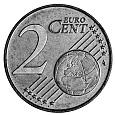







©TheEducationalCompanyofIreland


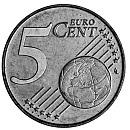










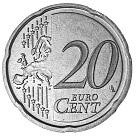








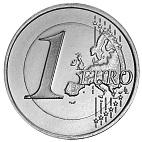














38 MathsandMe ©Edco Unit 14:SamplePCM1
EuroCoins Cutoutthecoins.














©TheEducationalCompanyofIreland

















39 MathsandMe ©Edco Unit 14:SamplePCM2
MoneyArea Parts
The ToyShop
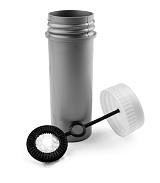
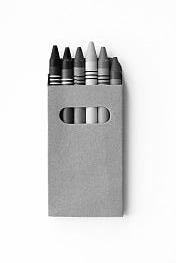




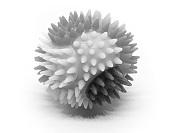
A: Howmuchmoneydo Lexi,Jay,andDarahave tospendinthetoyshop?
Lexi: _______c
©TheEducationalCompanyofIreland
Jay: _______c
B: Work withyourpartner.
Whohasthemostmoney?
Whohastheleastmoney?
HowmuchmoneydoesJayhave?
Dara: _______c
Draw thetoythatis thecheapest.
C: True[✔]or false[✘]?:
Daracanbuythe Lexicanbuythe
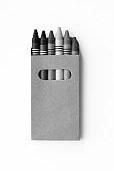
Draw thecoinsneededtobuythe bubbles.
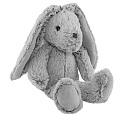
Draw thecoinsneededtobuy theball.
40 Unit 14:Let’sStrengthenPCM MathsandMe ©Edco
6c 4c 7c 10c 5c 3c 8c
Money
Pick:Whatyou wanttodo,whatyou wanttouse,andwhoyou’d liketodo thesewith!
ComparingandOrdering
Whichcoingoesintheemptybox?Draw thecorrectcoin. least ➔ greatest least ➔ greatest least ➔ greatest
Lexi’spursehas2bronzecoins. Collectordraw differentcoinsandtotalsshecouldhave inher wallet. Writethetotals.
©TheEducationalCompanyofIreland
Draw thecoinstomatchthetotals: 10cin2ccoins 10cin5ccoins
Jayhas12c.Allhiscoinsarethesame. Colourthecoinhehas.
Draw orlistthedifferent waysyoucanmake15c.Howmanydifferent ways arethere?
41 Unit 14:Let’sDeepenPCM MathsandMe ©Edco
_______c _______c _______c _______c
Money
Class Teachers: Usetheseactivitiesalongsidethespecifiedlessons,tostrengthentheunderstandingof children,as required.Manyoftheseactivitiescouldalsobeusedasastation.
SpecialEducation Teachers: Usetheseactivitiestosupportchildren(pre-teachingor re-teaching)inin-class and/orwithdrawalsessions.
Recognisingcoins
● Discusswhen we usemoney,andthat we usecoinstohelpuscarrymoneyaround.Distributecoinsindividuallytoeachchild, startingwiththe1ccoin.
©TheEducationalCompanyofIreland
● Childrenwhoarenot familiarwiththecoinscangainfrompractisingtheirskillsinidentifyingandselectingthem.Ask: Canyou tellmewhatthiscoinis?Canyoufindthe 10 centcoin?Chooseacointhatisworthmorethan 10 centorlessthan50cent.
● Askthechildrentocarefullytracearoundthecoins, focusingontheshapesandsizestostrengthentheir recognitionskills. Encouragecreativeactivitiessuchasmakingcaterpillarsorothershapeswithtracedcoins.
Sortingcoins
● Askthechildrentosortcoinsaccordingtotheirself-selectedcriteria.Askthemtoexplainwhytheysortedthemthisway.
● Askthechildrentosortthecoinsaccordingtocolourandtoexamineeachcolourgroupatatime. Forexample, focusingonthe browncoins,ask: Whatisontheback/frontofeachcoin? (Useamagnifyingglasstoaddanoveltyelementtothistask.) Inwhat way(s)arethesecoinsthesame/different?
● [When ready,exploreadifferentcolourgroupinthesameway(e.g.thegoldcoins).Sortthem by value.Ask: Whatdoyou noticeaboutthecoinandhowmuchmoneyit represents? Stickoneofeachcointoacup/container,providinglotsof opportunitiestopractisesortingavarietyofcoinsintothecorrectcontainers.
Matchingcoinsandamounts
● UsePCM1EuroCoins forinteractivegamessuchas‘Snap’or‘GoFish’, reinforcingcoinvaluesthroughplay. Prepareasetof coinvaluescorrespondingtothecoins forthegame.
Comparing/orderingcoinvalues
● Beginwithcoins rangingfrom1centto50centswhencomparingandorganisingcoinvalues.Understandingwhy €1 isatthe endofanumberpathor representsthehighestvaluemayposeachallenge forchildreninitially,buttheywilldevelopabetter graspofthisconceptastheyprogresstoFirstClass.
● Giveeachchildanemptynumberpath.Askthemtoputcoinsonthepathinorderofvalue.Ask: Whyis1catthestartofthe numberpathand50cisattheend?Is 10cworthmoreorlessthan20c? Emphasisetheideathatthecoinontherightinanypair hasagreatervalue.
● Play‘CoinSortingChallenge’fromtheGamesBankto reinforcecomparingandorderingcoinvalues.
Countingcoins
● Askhowmany1ccoinsarethesameasone5ccoin.Placefive1ccoinsunderthe5contheboard,emphasisingthat5cisthe sameasfive1ccoins. Repeatwithothercoinvalues,using1ccoinseachtimeatthisstage.
● Initiallyaskthechildrentocountmultiplesofidenticalcoins(e.g.six × 1c,or3 × 2c,or2 × 5c).Progresstowardscountinga smallcollectionofcoins,twodifferenttypesonly.Ask: Whatstrategy(strategies)didyouusetocount?(Howdidyoucount?) Whatotherway(s)couldyoucountthatgroup?Whichwayisquickest?
42 Unit 14:Let’sStrengthenSuggestions for Teachers MathsandMe ©Edco
Title
Notetoteachers: Anextensivegamesbankis available foreachclasslevelwithgames relating toallunits.Thegamesincludedinthisbookletareasampleofthegames available for Unit 14:Money.
What’sMyCoin?
Numberof players: 2
Youneed:
Howtoplay:
Coins(4 denominations),clothbag
©TheEducationalCompanyofIreland
Strengthen:
Deepen:
Playerstaketurnspickingacoin fromthebag withoutlooking.
They keepthecoinhidden fromtheirpartner. To guessthecoin,partnersask questionsabout size,colourand value.
Thechildrencanask questionssuchas: Isit copper? or Isitsmallerthana2ccoin?
Only Yes/Noanswersareallowed.
The firstpersontoguessthecorrectcoinwins thegame.
Limitthecoindenominations availabletobe chosen.
Allowplayerstoanswerquestionswithmore thanjust Yes/No.
Addmoretypesof coinstothebag,introducing awider rangeof questionsandpossibilities.
Giveeachplayeracertainnumberof chances toidentifythecoincorrectly(e.g.youhave 3questionsandthenyouhave toguess).
Playerscanbeblindfoldedwhileselectingtheir coin,sothatthey relyontouch, ratherthan visualclues.
43 Unit 14:GamesBank MathsandMe ©Edco
Title
CoinSortingChallenge
Numberof players: 2–6
Youneed:
Howtoplay:
Strengthen:
Eurocoins(1c,2c,5c,10c,20c),smallcontainers labelledwitheachcoin value,timer
Setuplabeledcontainers foreurocoin valueson thetabletop.
©TheEducationalCompanyofIreland
Deepen:
Scattereurocoinsacrosstheplayingarea.
Players raceto findandplacecoinsintheright containersbeforethetimerunsout.
Playersarrangethecoinsineachcontainer from smalltolarge.
Eachplayerpicksthecontainertheybelievewill have thehighest valueandexplainswhy.
Countthecoinsineachchosencombinationto seewhichhasthehighest value.
Limitthecoindenominations availabletobe chosen.
Allowchildrento work inpairstosortthecoins intothelabelledcontainerstogether.
Turntheactivityintoasimplesortingand orderinggame.Increasethecoindenominations andcupsbutwithoutthechoosingof container orcountingof values.Herethegroup works togetherto findthecoins,sortandorderbefore thetimeisup.
Introducelargereurocoindenominations for addedchallenge.
Combinesizeand valuesorting by asking childrento firstsortcoins by sizeandthen arrangethemwithineachsizecategory from smallesttolargest value.
44 Unit 14:GamesBank MathsandMe ©Edco
Money
LessonFocusoflearning
Day1,Lesson 1: Awarenessof Money
Day2,Lesson2: Let’s Trade!
● Articulatesandsharespriorunderstanding ofmoney(U&C)
● Discussesthepurposeofmoneyandthe differentwaysthat we canpay forgoods/ services(includingcashandcashless) (C)
● Become familiarwithwaysthatmoneyis spent,earnedandsavedand relatethese conceptstotheir ownlives(U&C)
● Discussestradingandswappingin real-life situations (C)
● Identifiesandjustifieswhetheratradeor swapisperceivedas fair(R)
● Exchanges fairlybasedon relativevaluein real-lifeor role-playcontexts(A&PS)
Assessmentdatarelatingto individuals/groups
©TheEducationalCompanyofIreland
Day3,Lesson 3: Recognising andSorting Coins
● Recognisestheeurocoins1c,2c,5c, 10c, 20c,50c, €1, €2 (U&C)
● Sortsandmatchesthedifferenteurocoins (R)
● Describessimilaritiesanddifferences betweencoins (C)
Day4,Lesson4: MatchingCoins andAmounts
Day5,Lesson5: Comparingand OrderingCoin Values
● Recognises,sortsandmatchescoins(R)
● Identifieswhichsinglecoincanbeusedto pay foranitem(R)
● Communicatesand recordsthenumber symbolsoncoins (C)
● Usesthecsymbolto representmoney (C)
● Recognisesthatcoinsholddifferentvalues (U&C)
● Recognisesthevalueofthe1c,2c,5c, 10c and20ccoins,usingthecentsymbol(U&C)
● Ordersthesecoindenominationsaccording totheirvalue(R)
● Usescomparativelanguagetodiscusscoin values (C)
● Identifiesandjustifieswhichcoinor collectionofcoinshasthegreatest/least value(R)
● Sets relativemonetaryvaluestoitemsin role-playscenarios (C)
45 Unit 14:FormativeAssessmentObservationsSheet 45 MathsandMe ©Edco
LessonFocusoflearning
Day6,Lesson6: CountingCoins
− Totalsto 10c
Day 7, Lesson7: CountingCoins
− Totalsto20c
● Recognisesanddemonstratesthatlowervalue coinscanbecombinedtoequalthevalueofa highervaluecoin(U&C)
● Investigatesdifferentwaystofindagivenvalue (totalsto 10c),usingagroupofcoins(A&PS)
● Selectsandusessuitablestrategiestotender appropriatecoins(A&PS)
● Beginstoexplainwhyhavingthemostcoins/ notesdoesnotnecessarilymeanhavingthe mostmoney(R)
● Exchanges fairlybasedon relativevaluein real-lifeor role-playcontexts(A&PS)
● Investigatesdifferentwaystofindagivenvalue (totalsto20c),usingagroupofcoins(A&PS)
● Recognisesanddemonstratesthatlowervalue coinscanbecombinedtoequalthevalueofa highervaluecoin(U&C)
● Selectsandusessuitablestrategiestotender appropriatecoins(A&PS)
● Beginstoexplainwhyhavingthemostcoins doesnotnecessarilymeanhavingthemost money(R)
Assessmentdatarelatingto individuals/groups
©TheEducationalCompanyofIreland
Days8and9, Lesson8:The ToyShop
Day 10,Lesson 9: Reviewand Reflect
● Usesa rangeofstrategiestomentallycalculate sumsofmoney(totalsto20c) (C)
● Determineswhatcanbebought forcertain sumsofmoney(R)
● Orderspricesaccordingtocostandidentifies whichitemscostmoreorless(R)
● Judgeswhetherthereisenoughmoneytobuy anitemand/orwhetherchangeshouldbe expected(R)
● Partakesinsituationswhereitemsarebought andsoldusingcashandcashlessmethods
● Selectsandusessuitablestrategiestotender appropriatecoinsandcalculatechange(A&PS)
● Reviewsand reflectsonlearning(U&C)
46 46
MathsandMe ©Edco
Unit 14:FormativeAssessmentObservationsSheet








































































